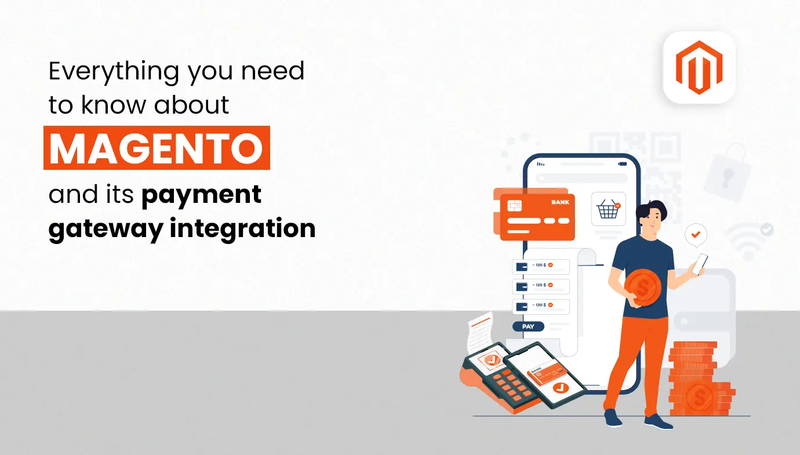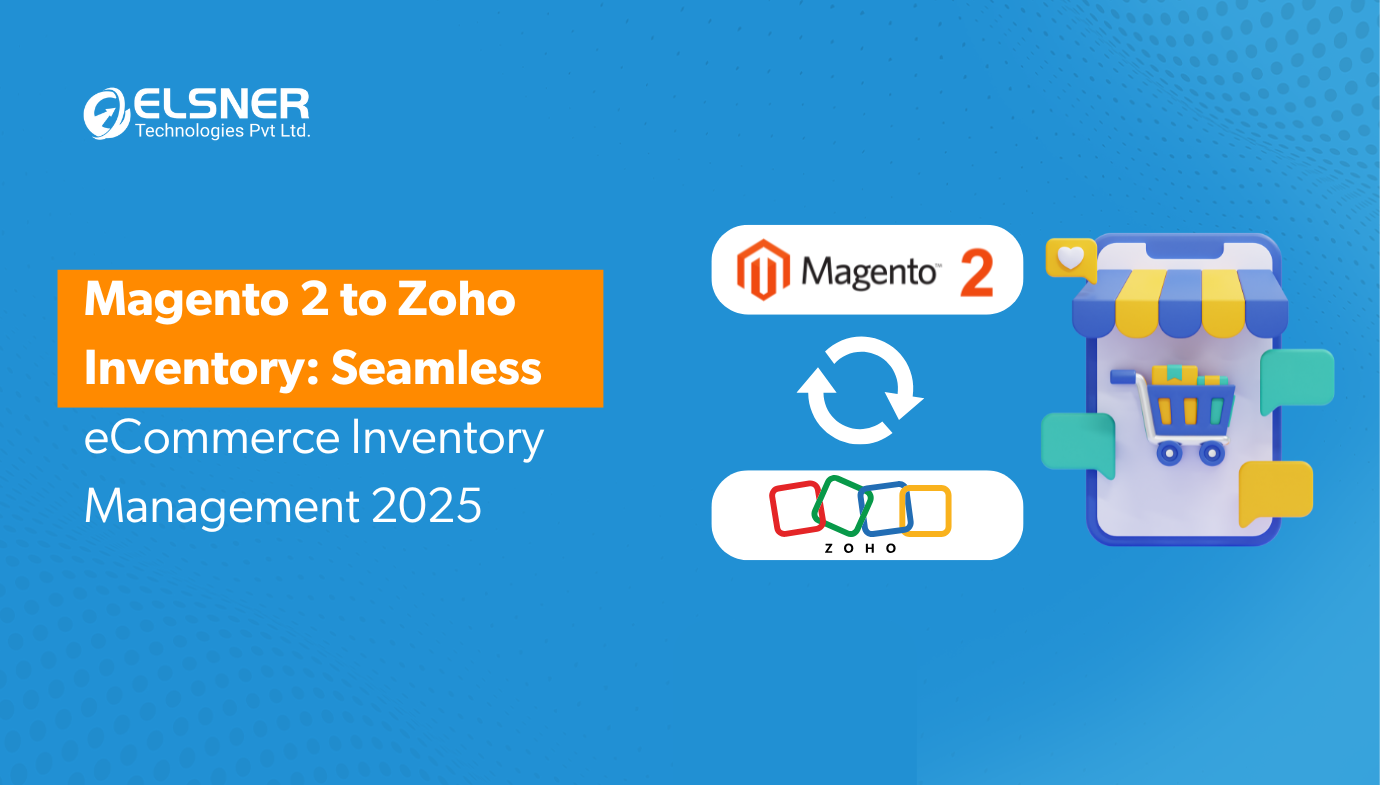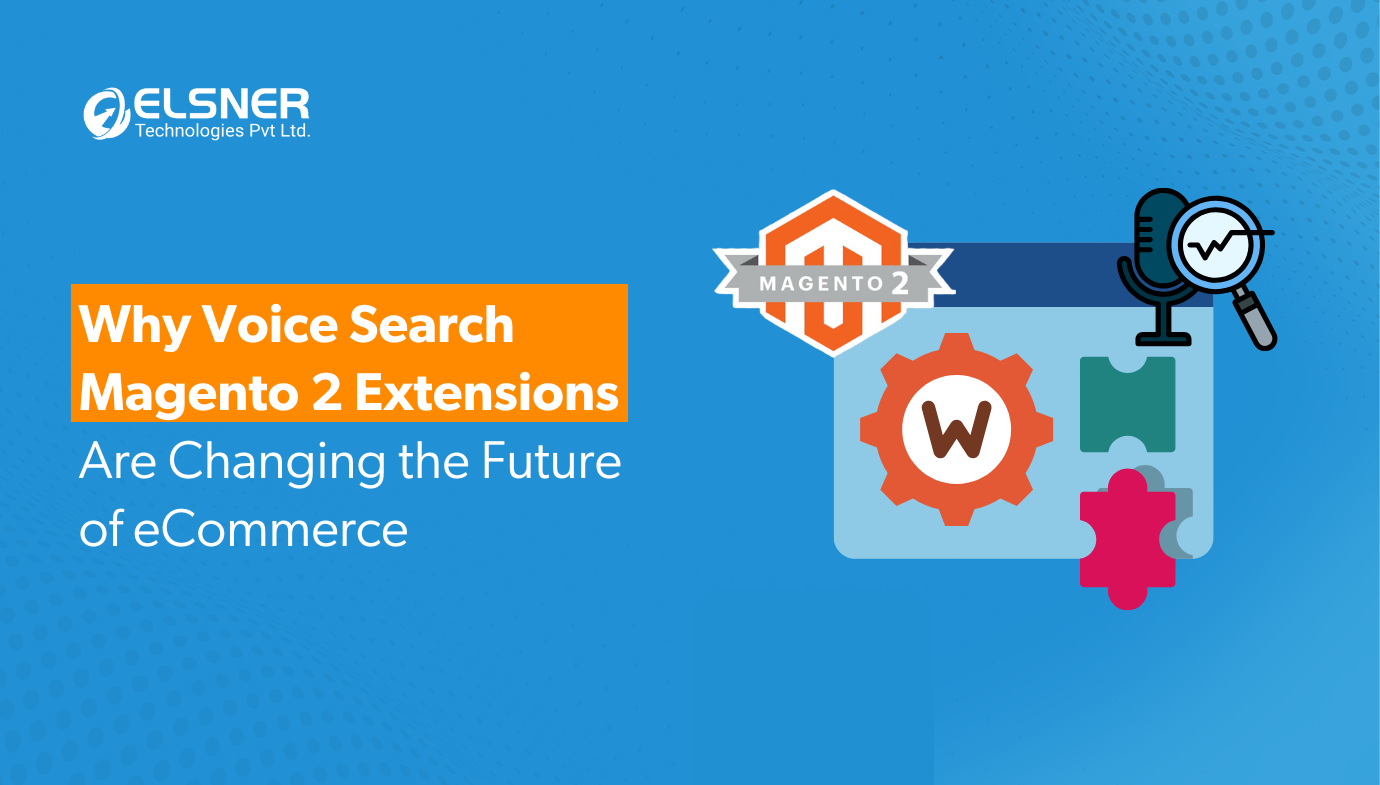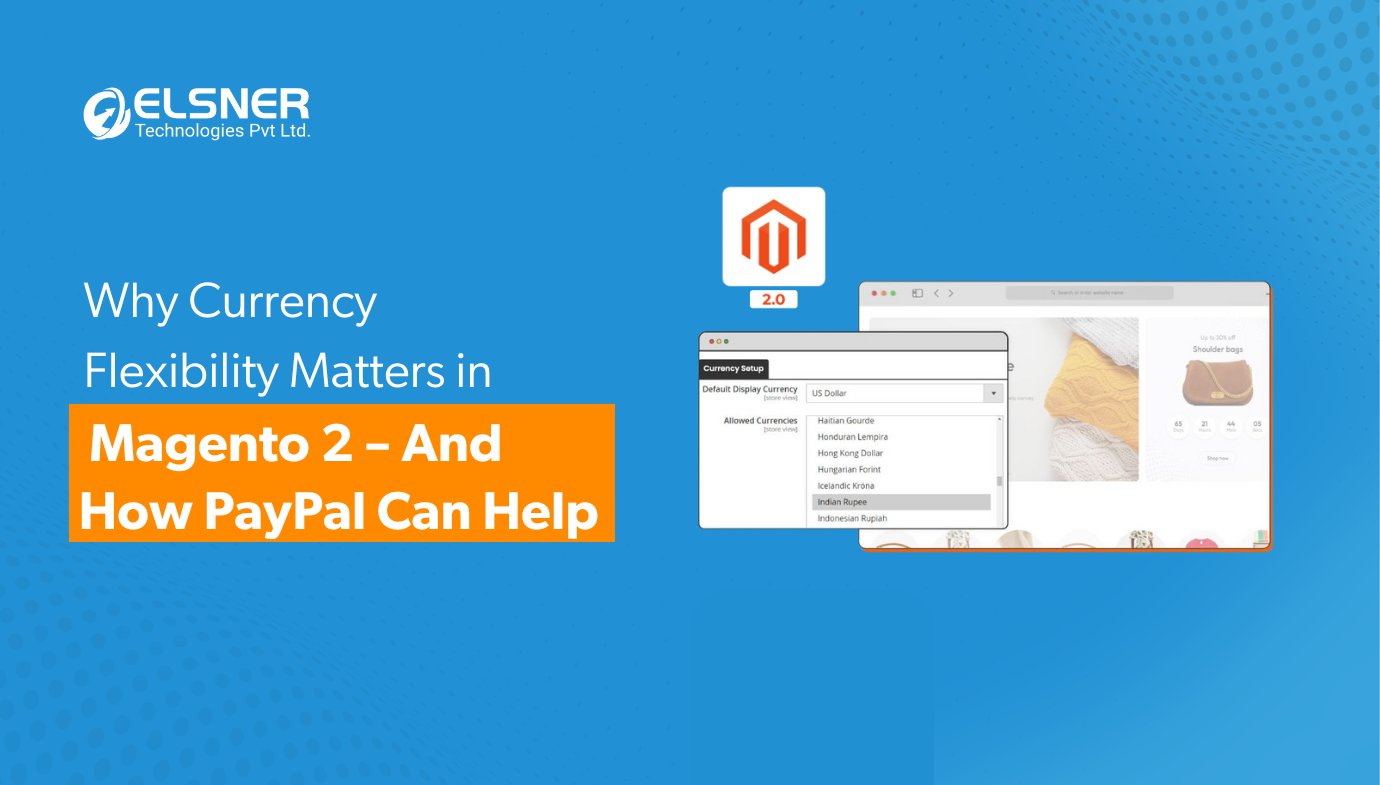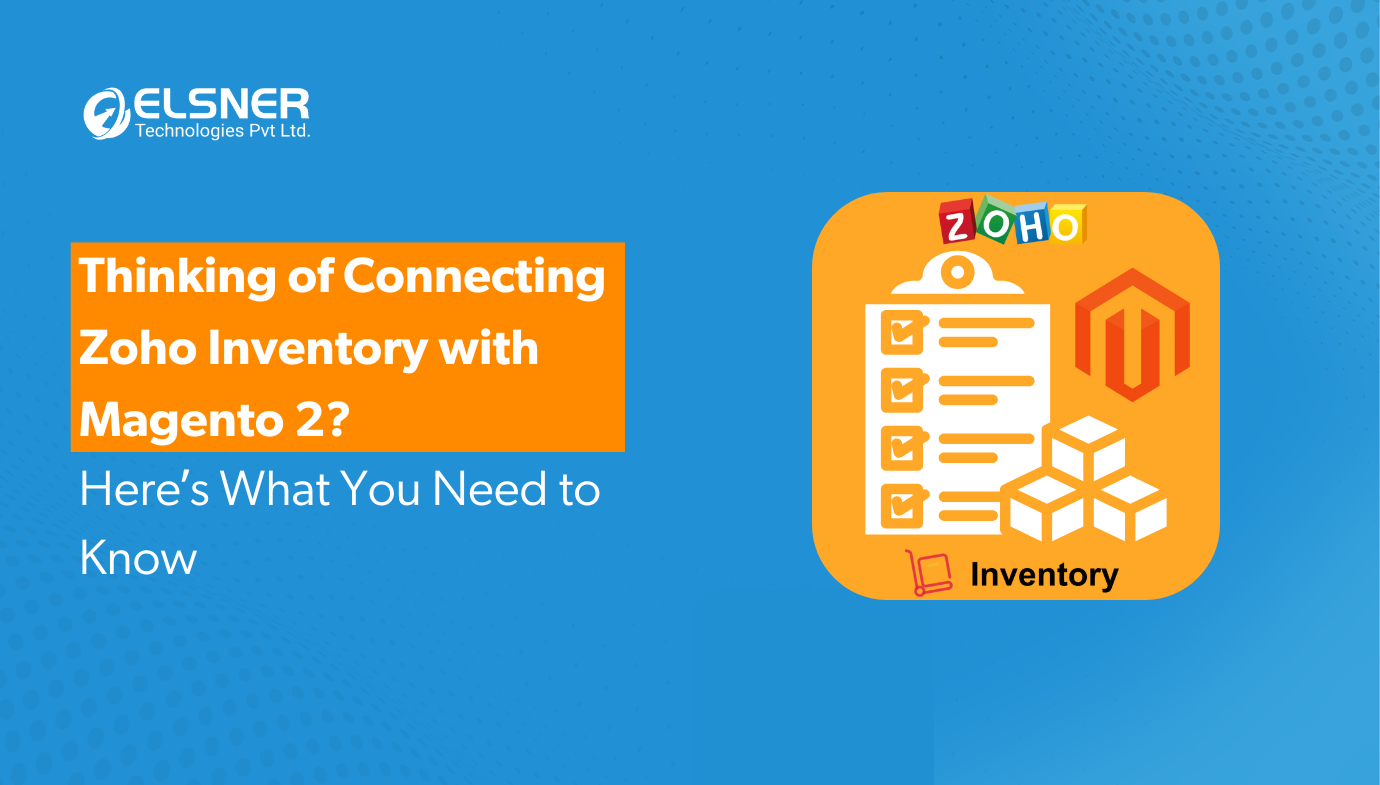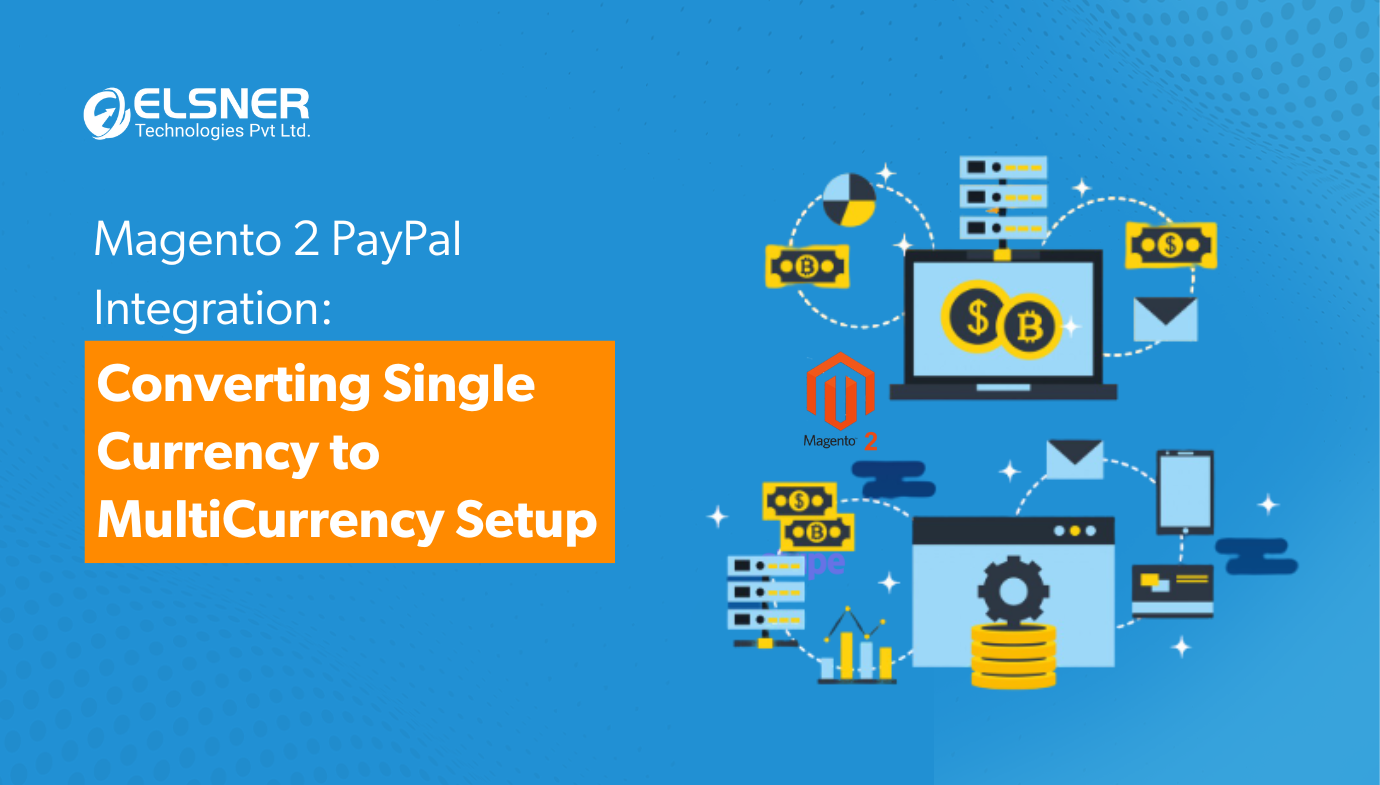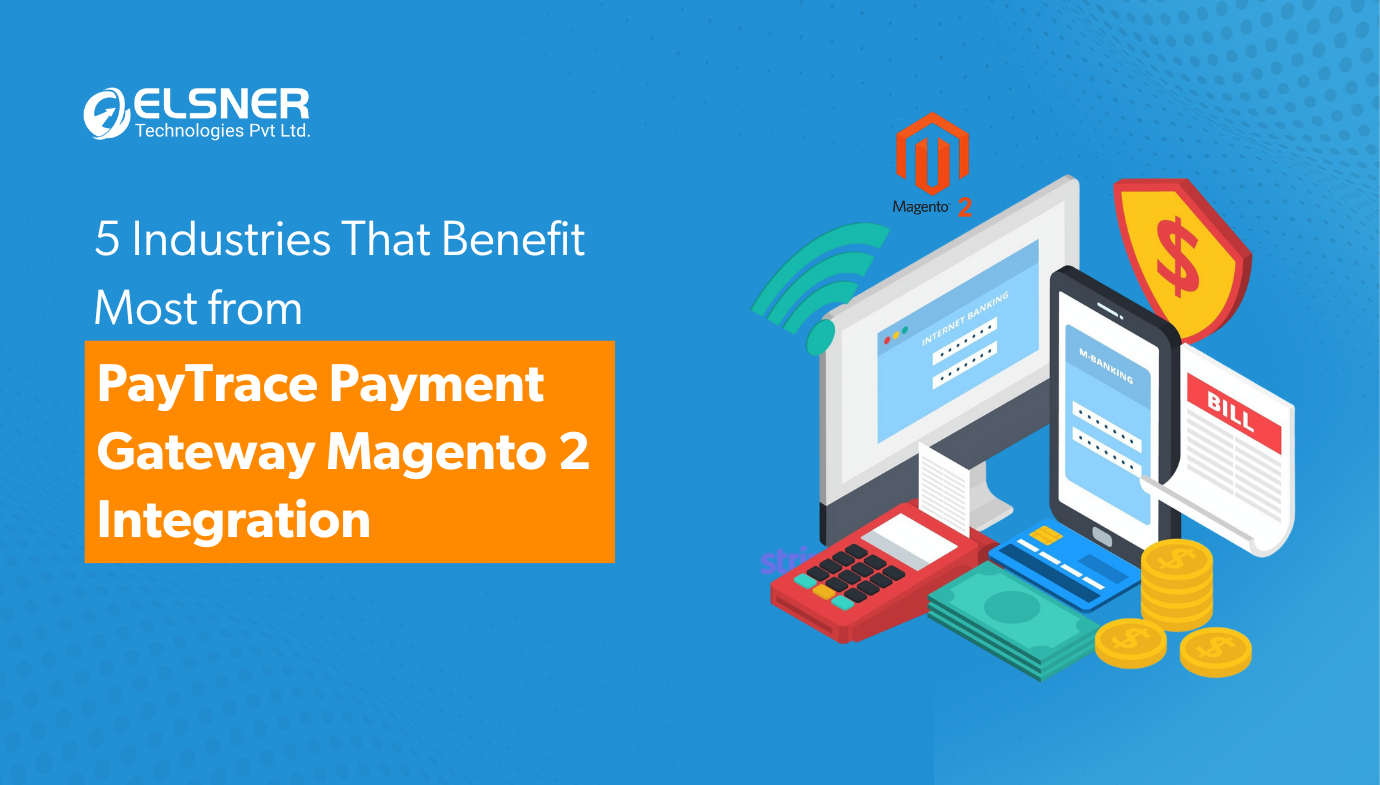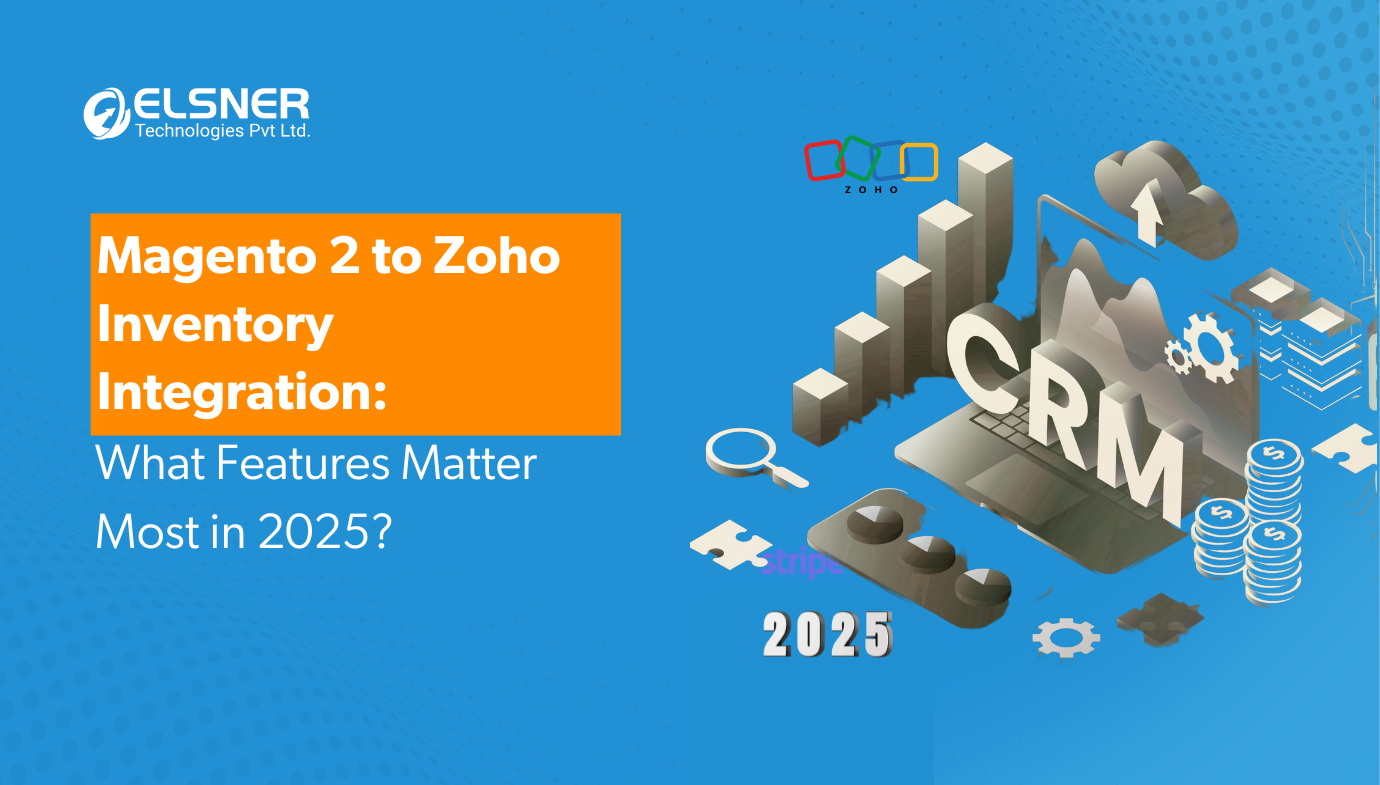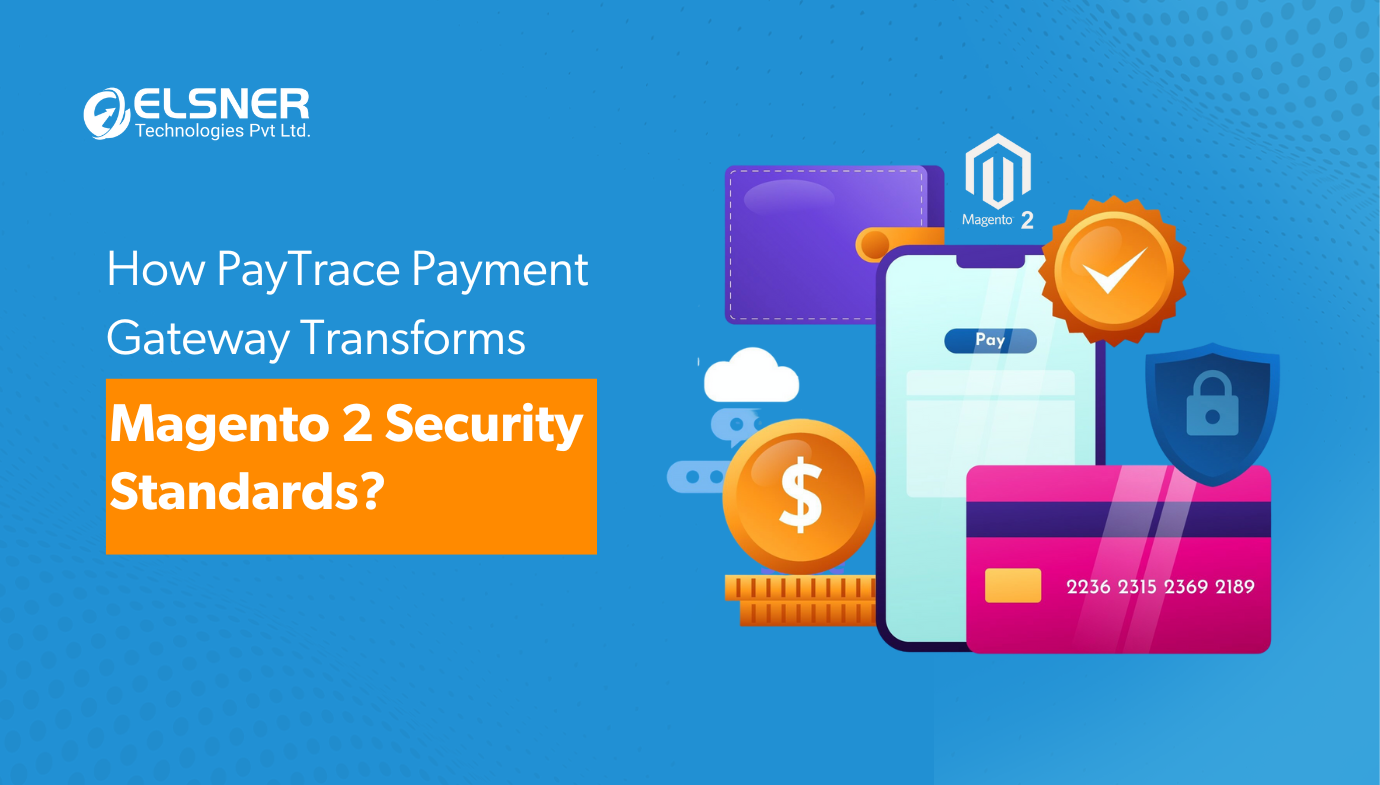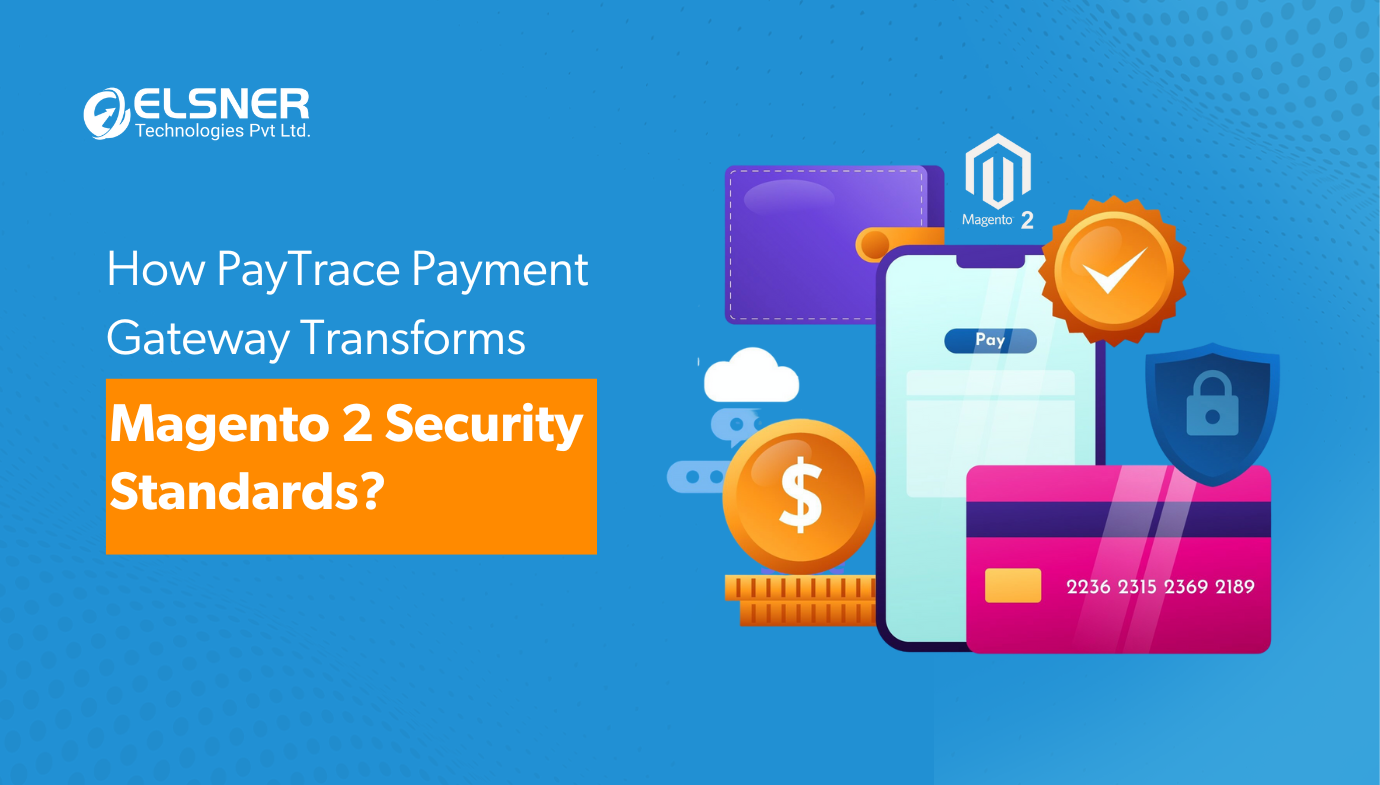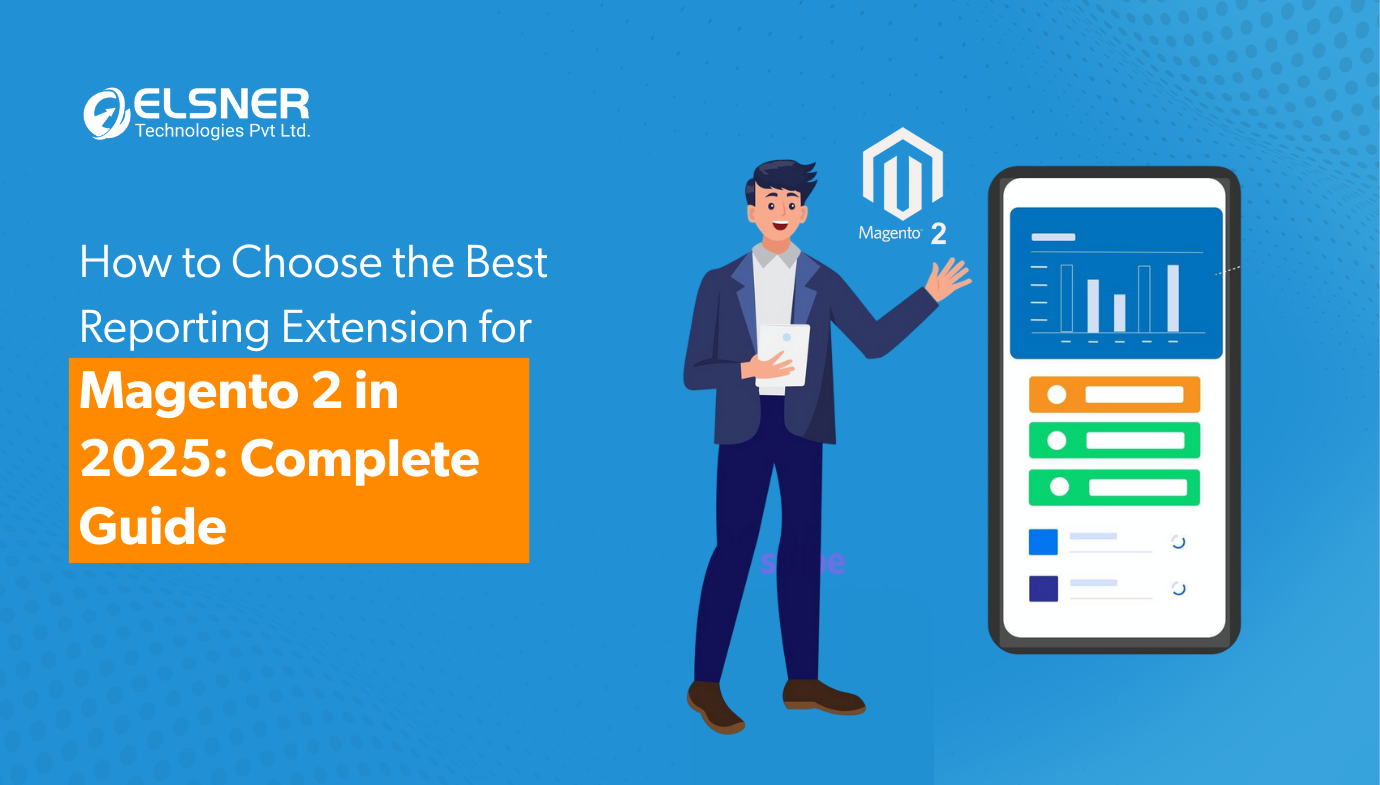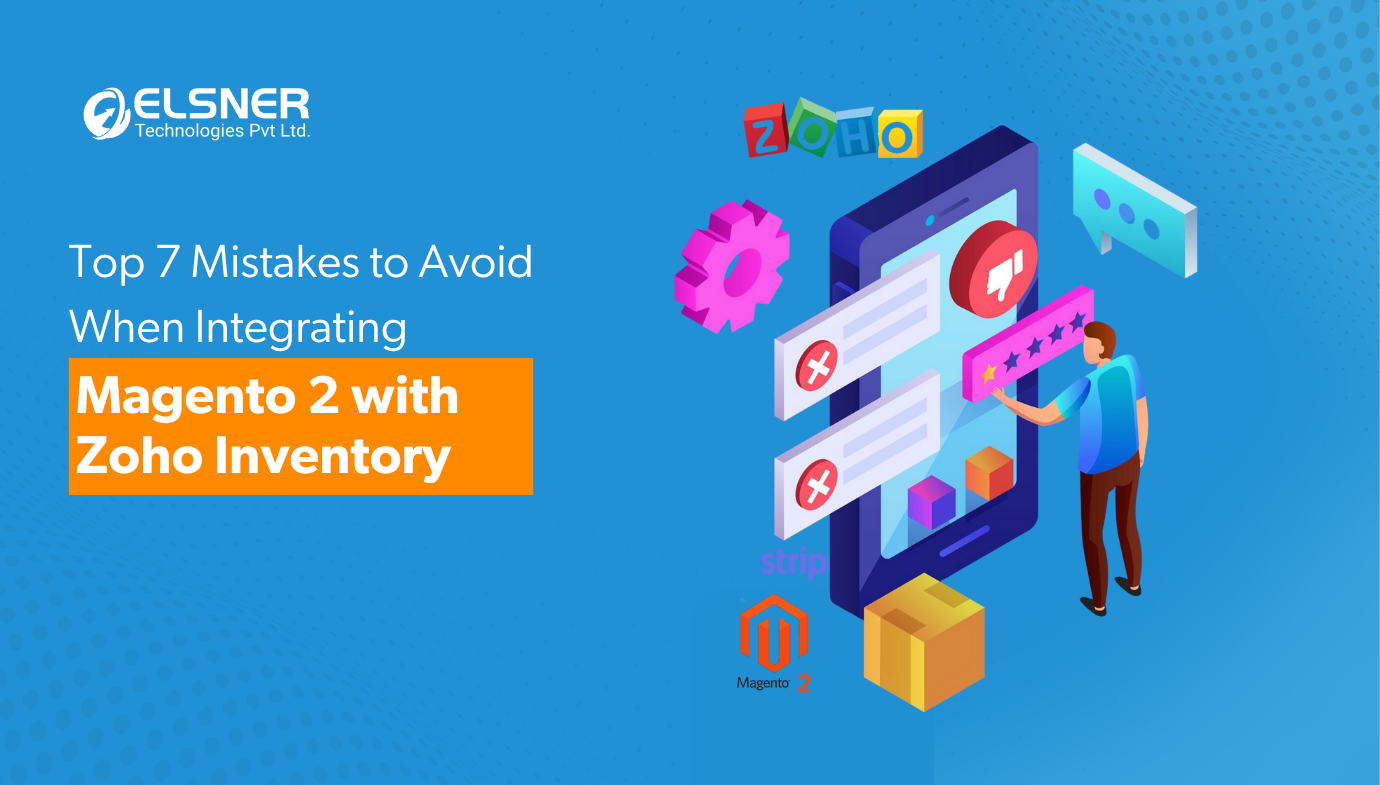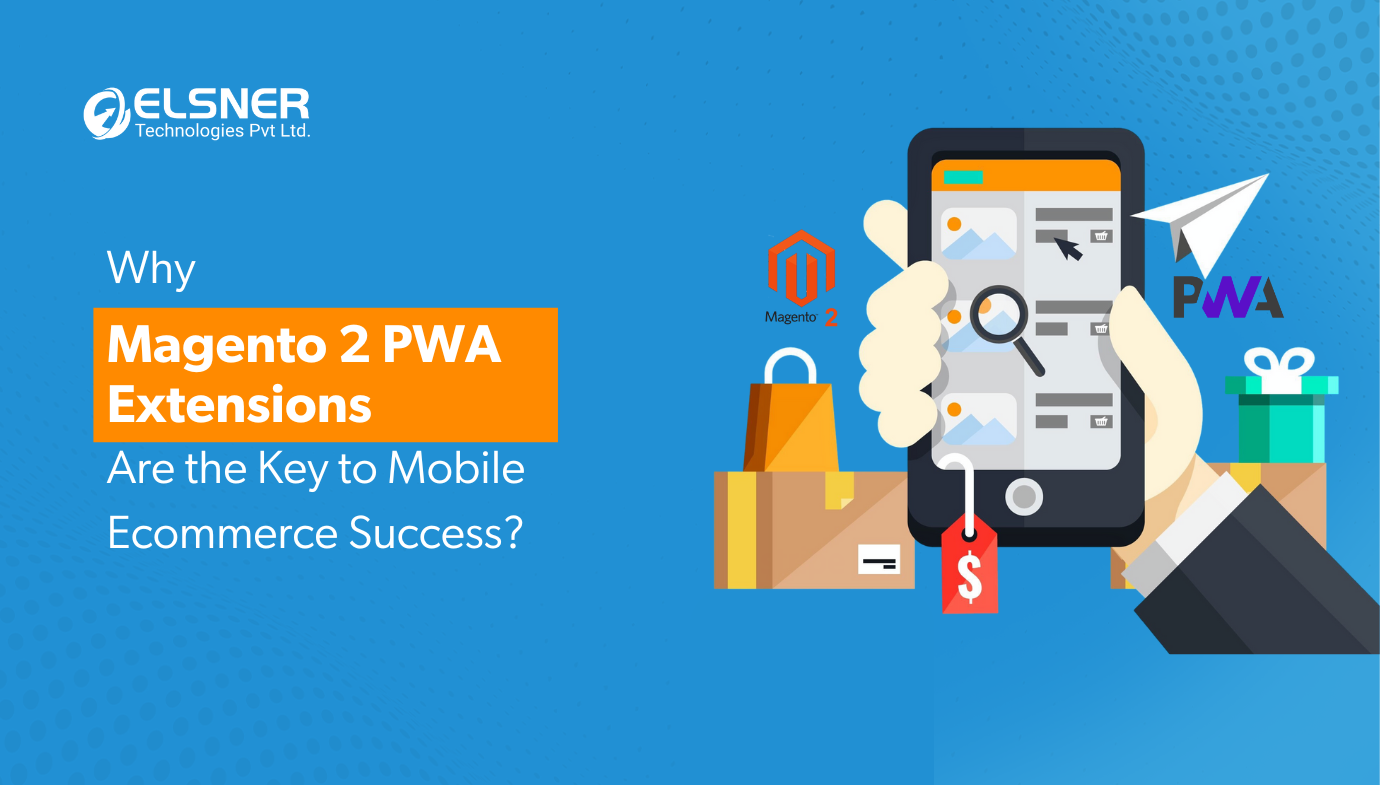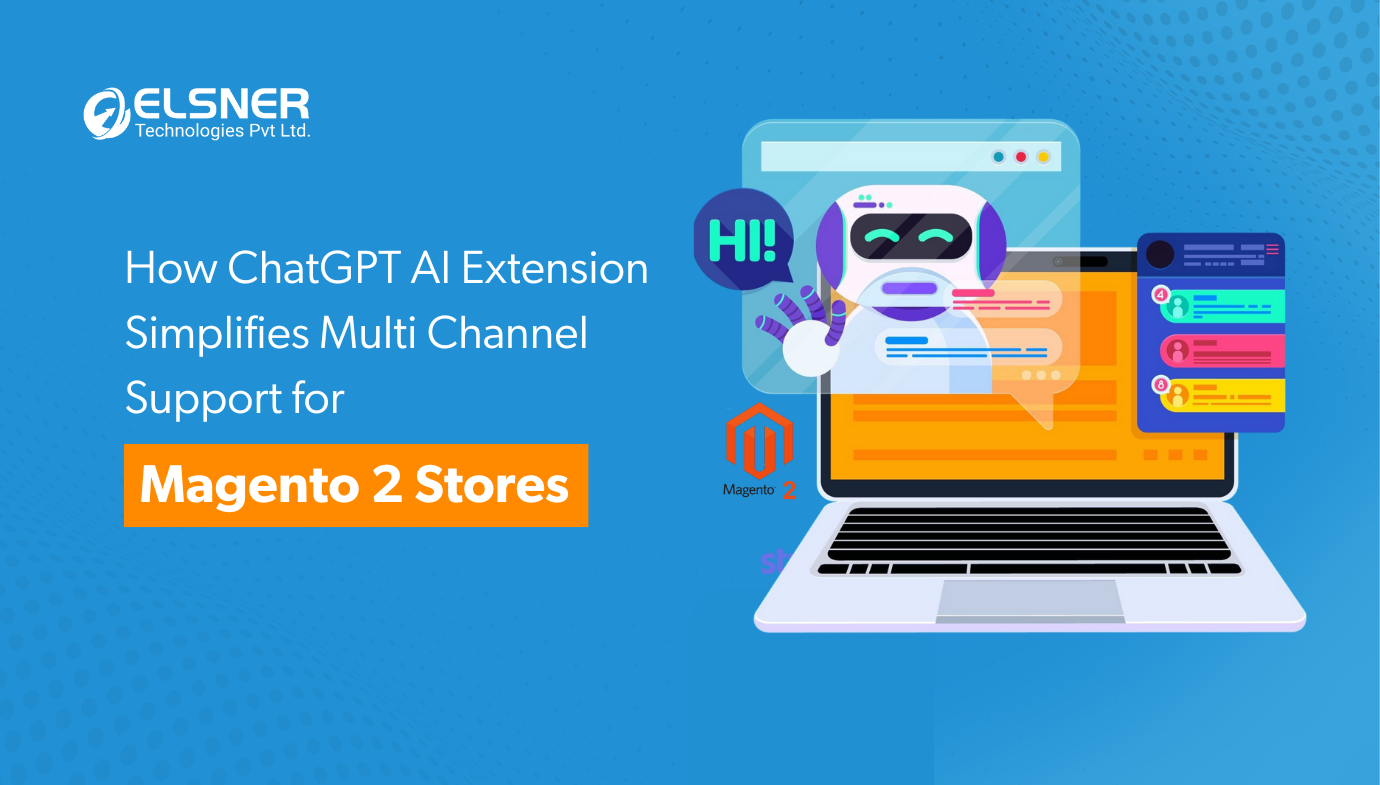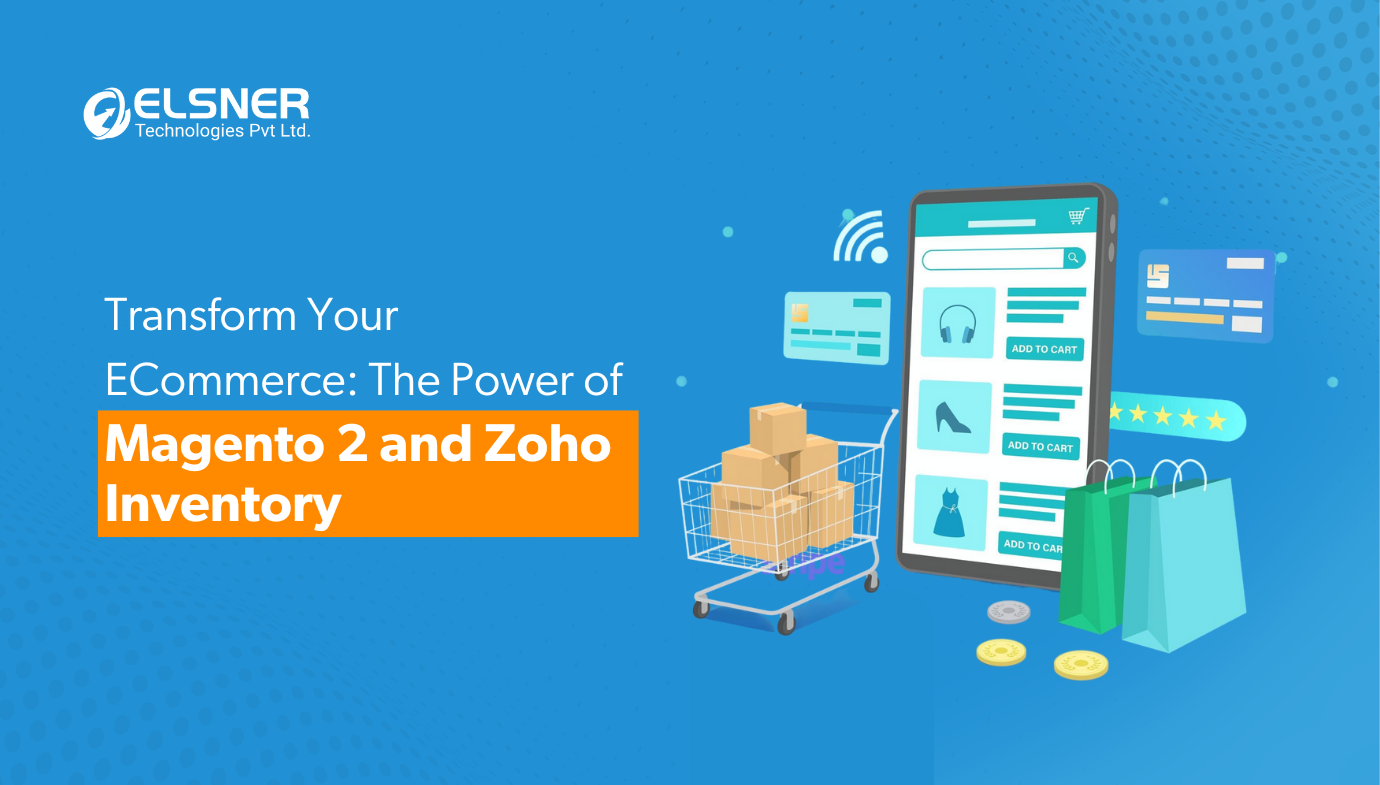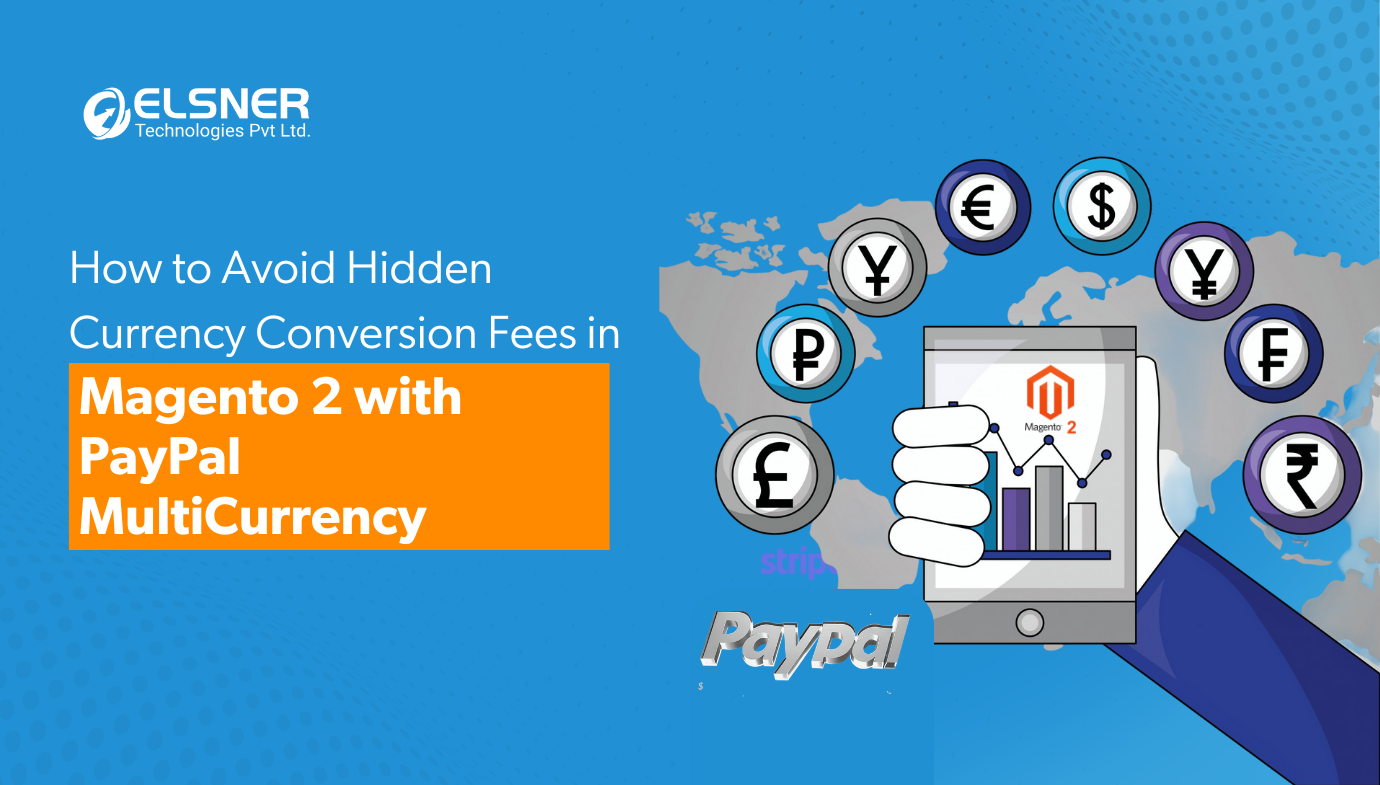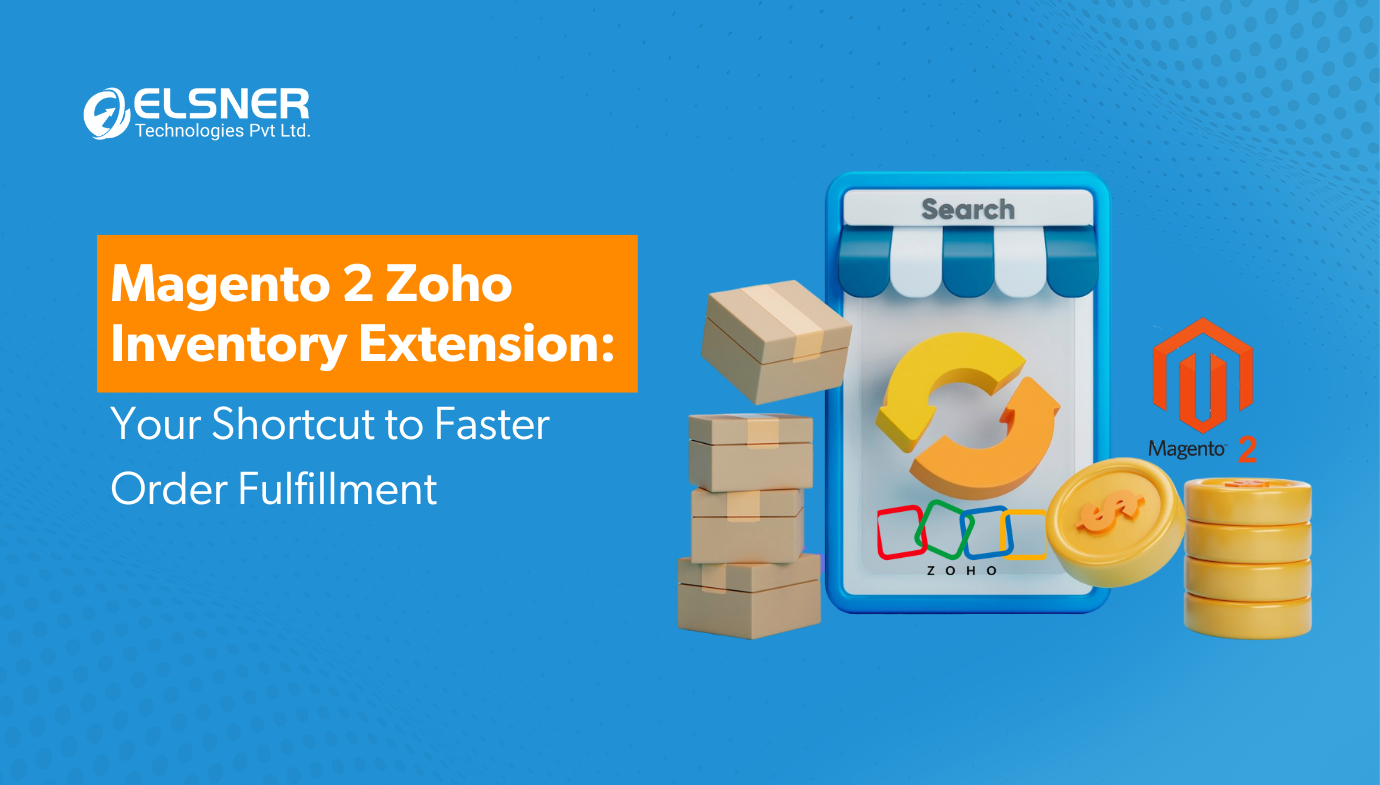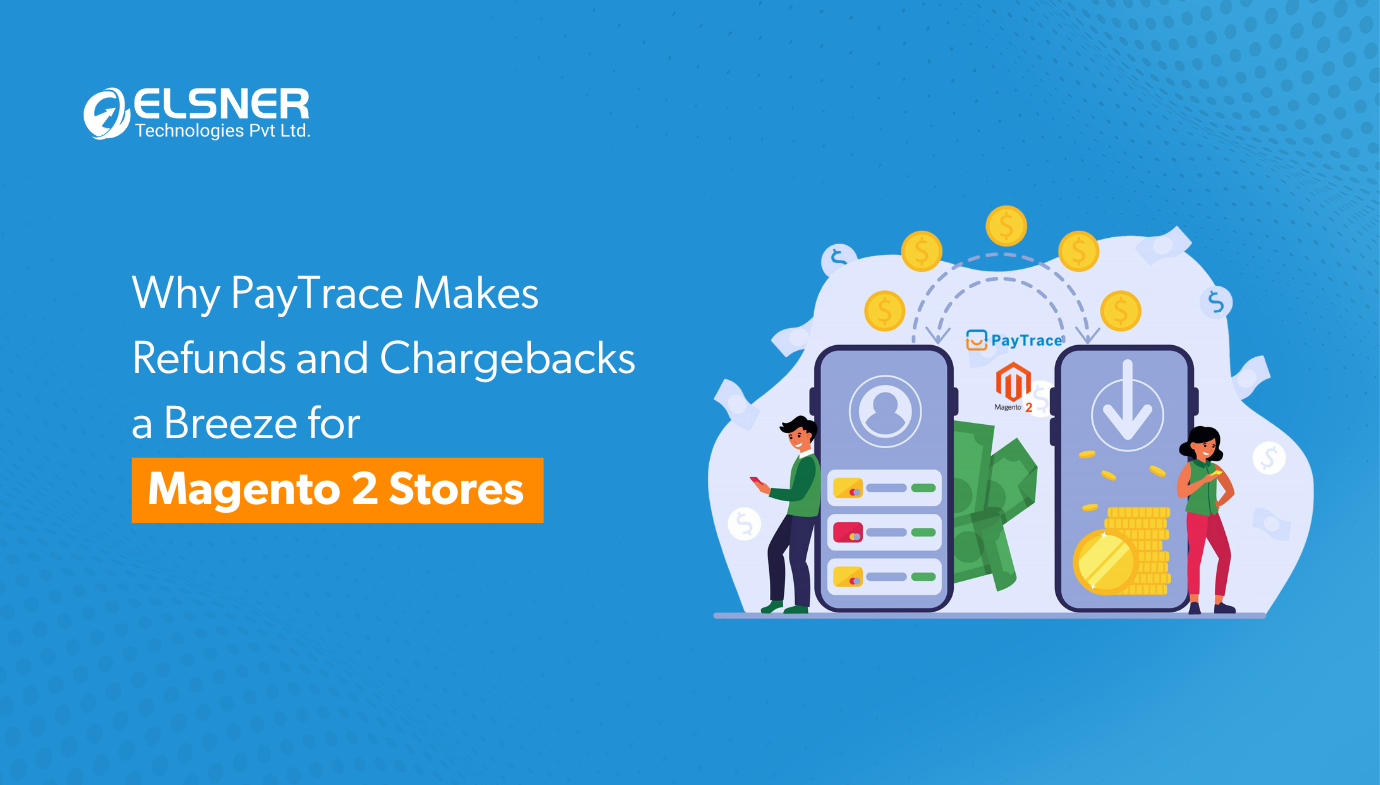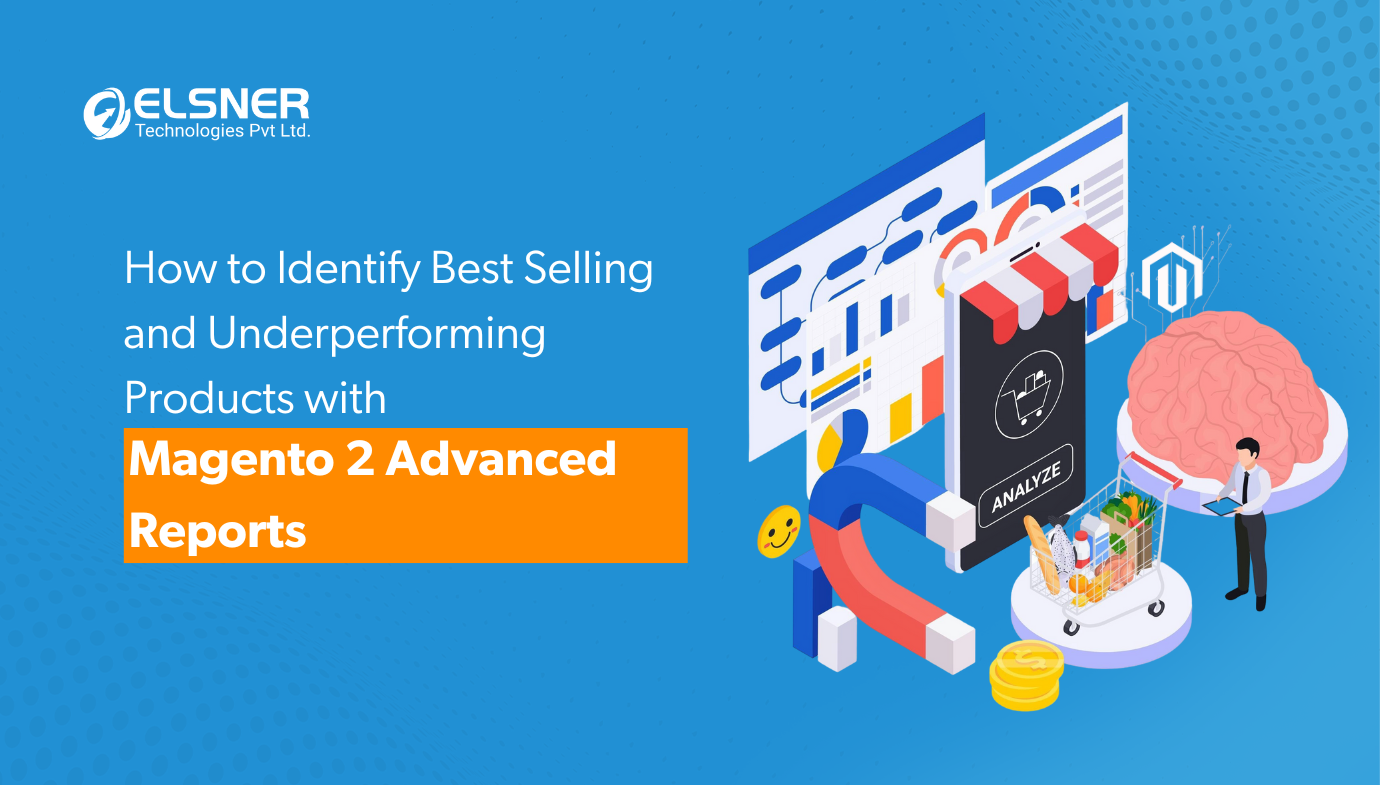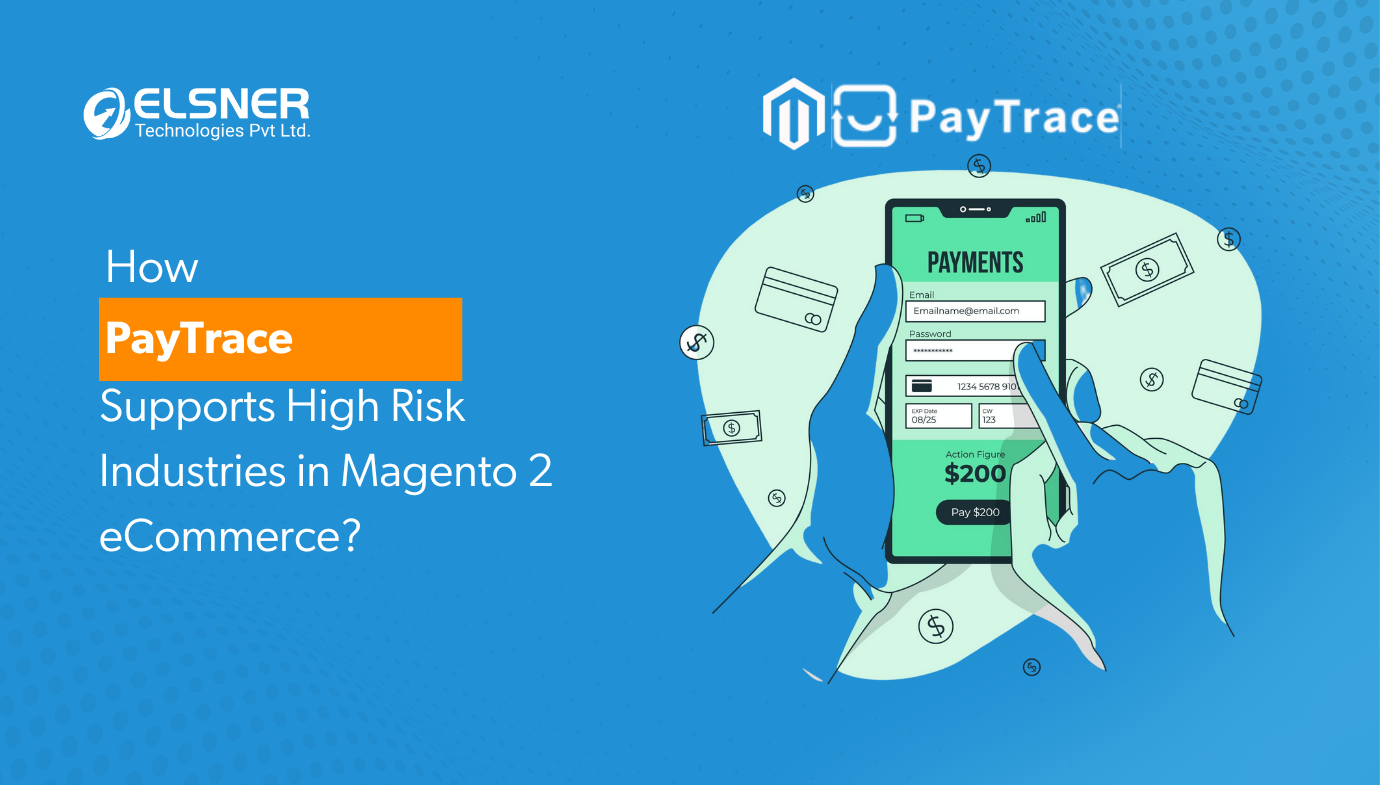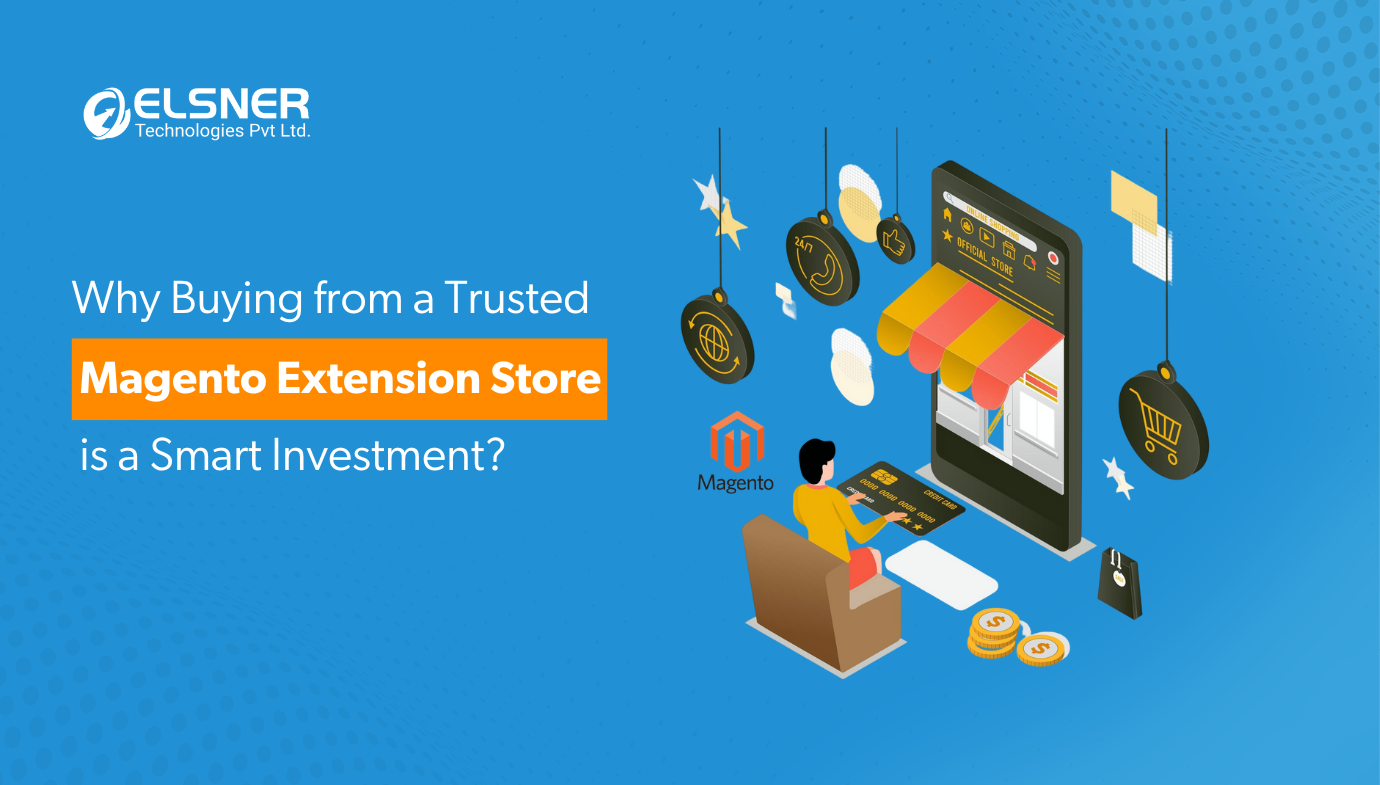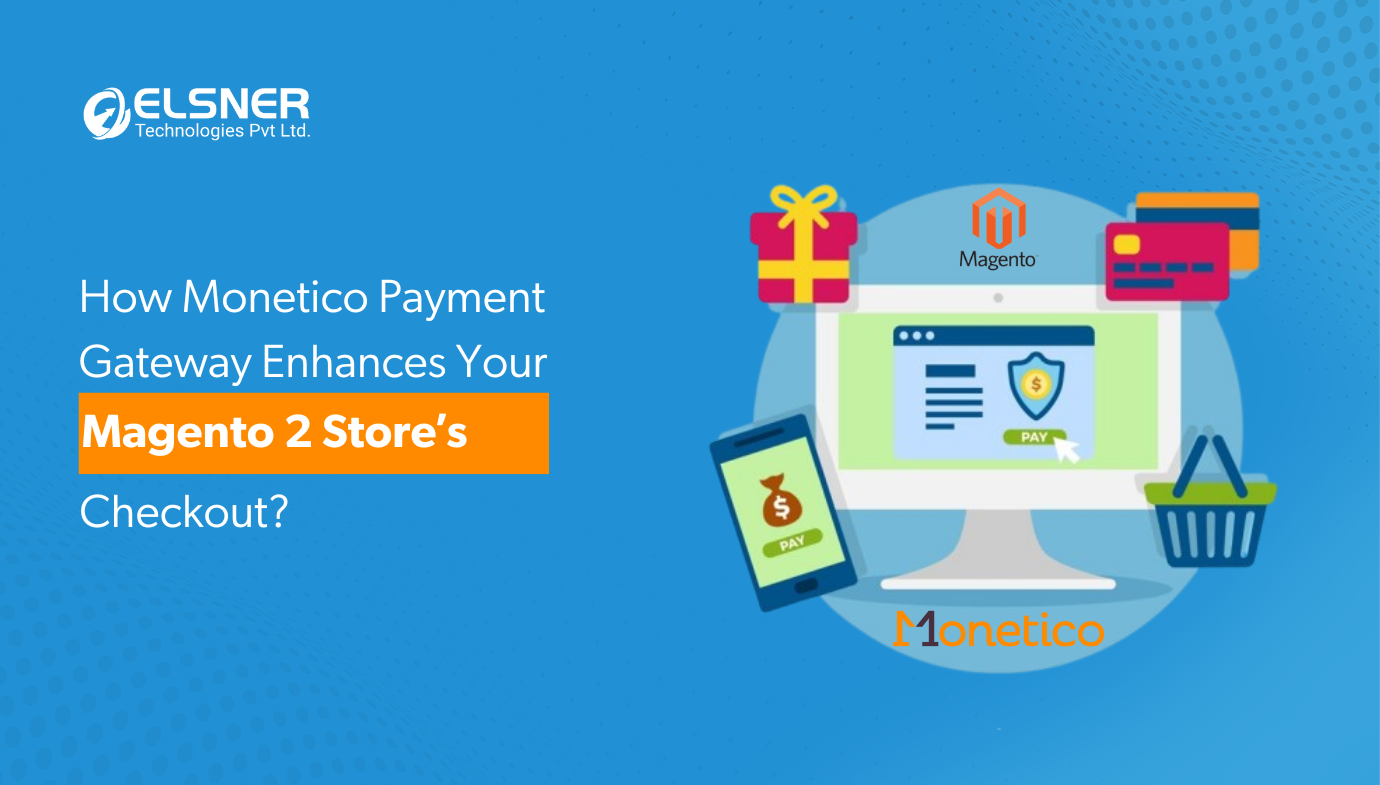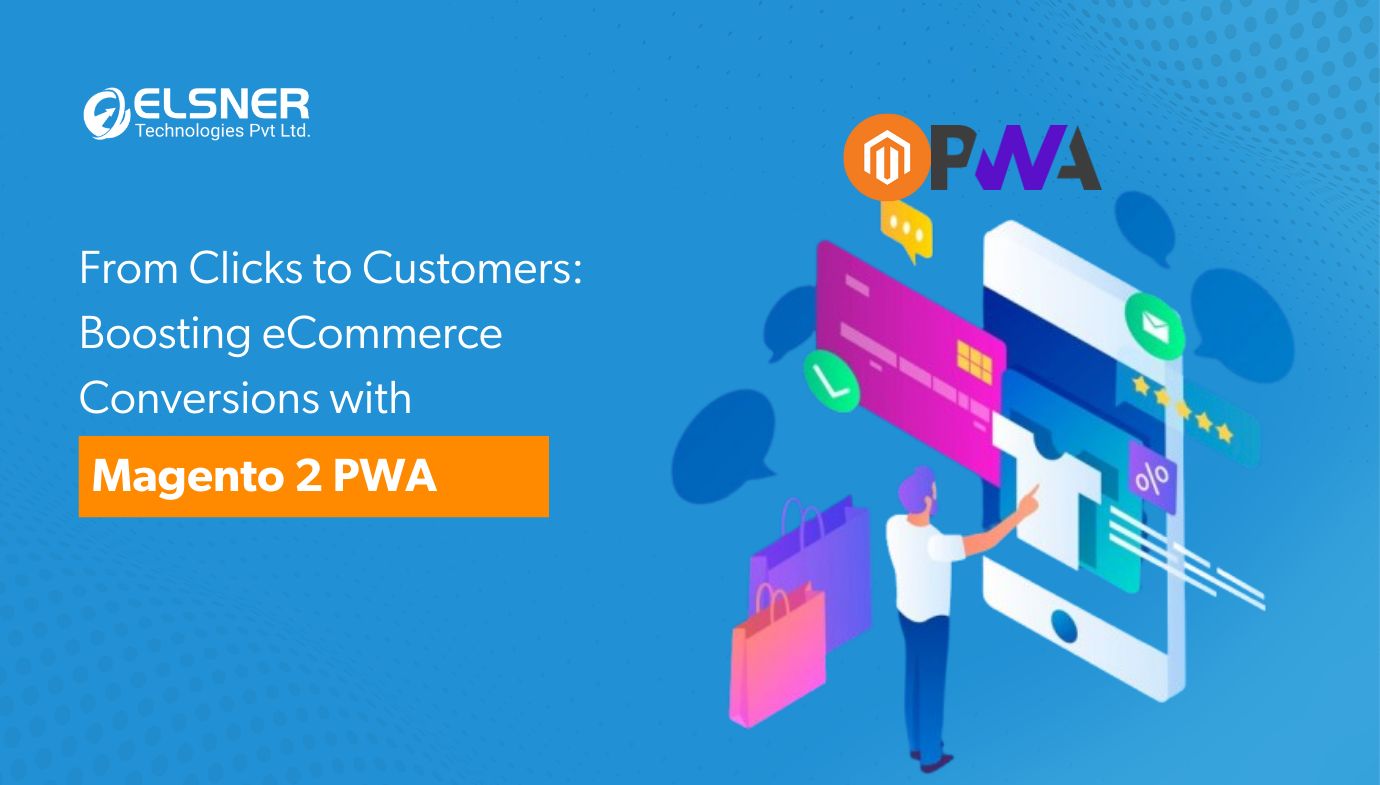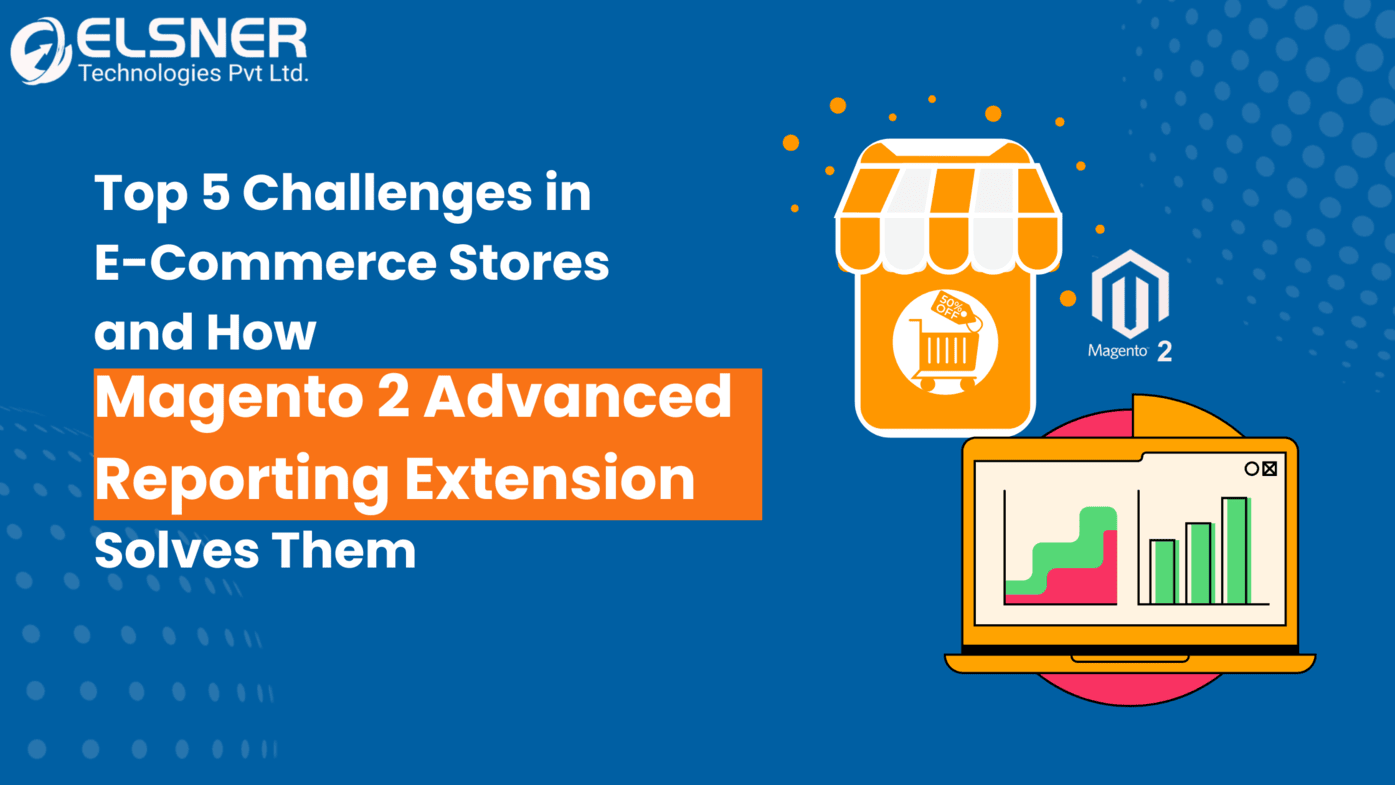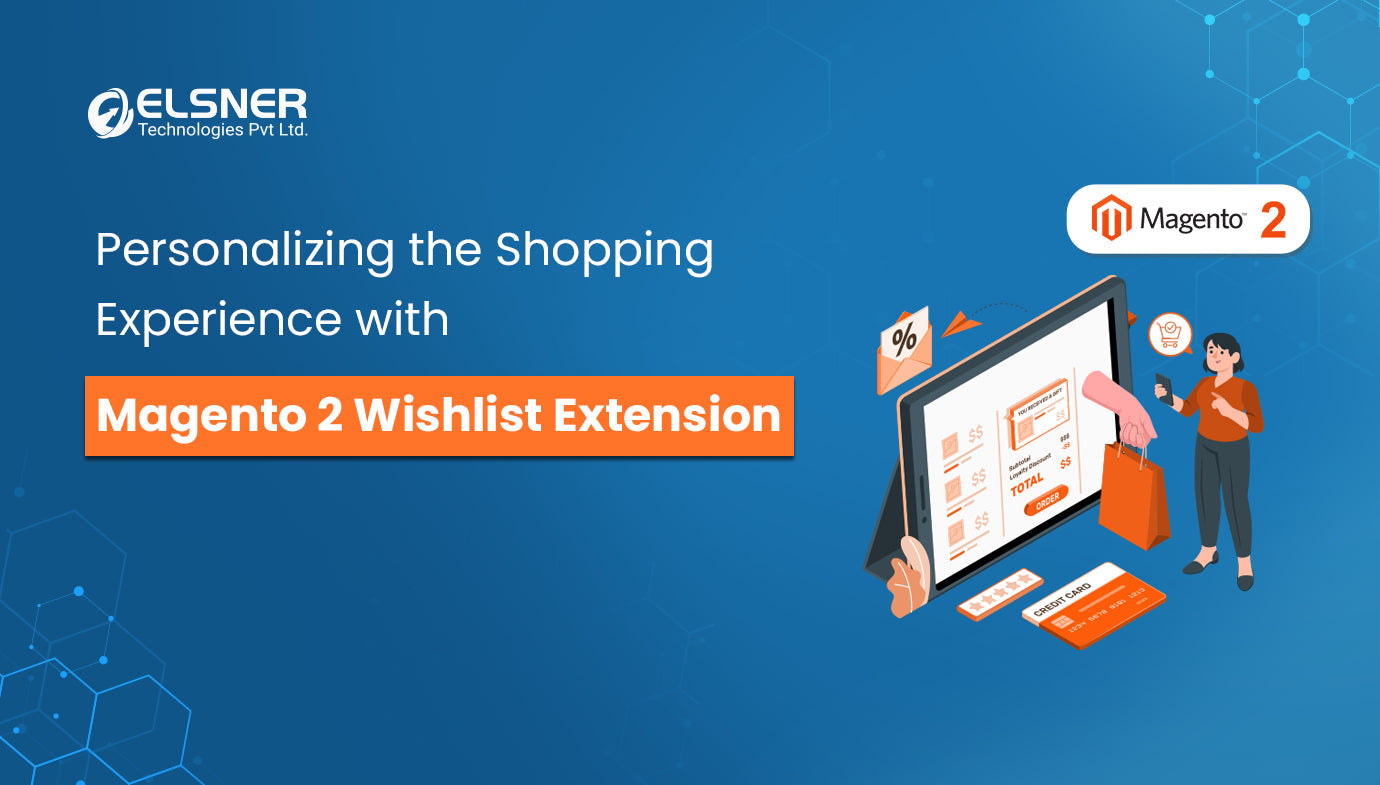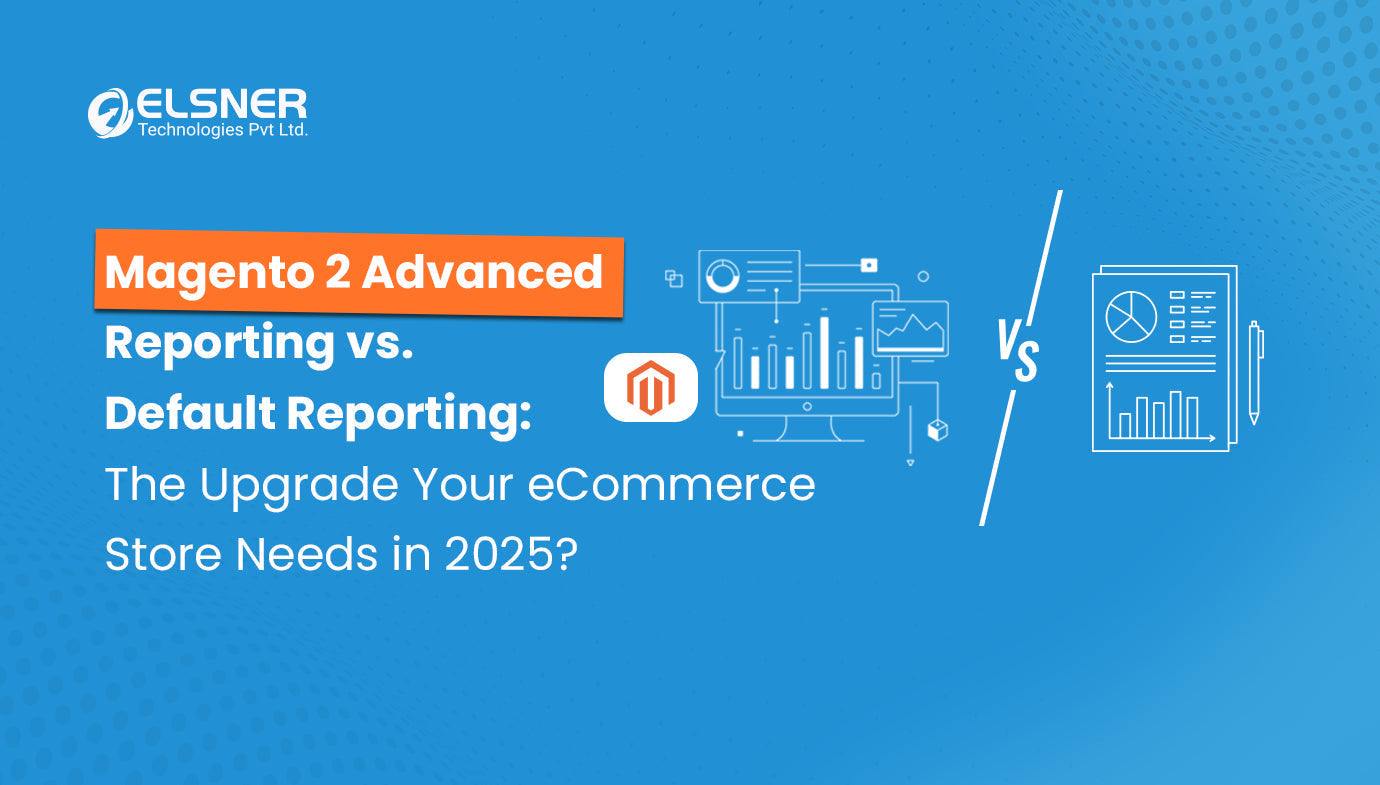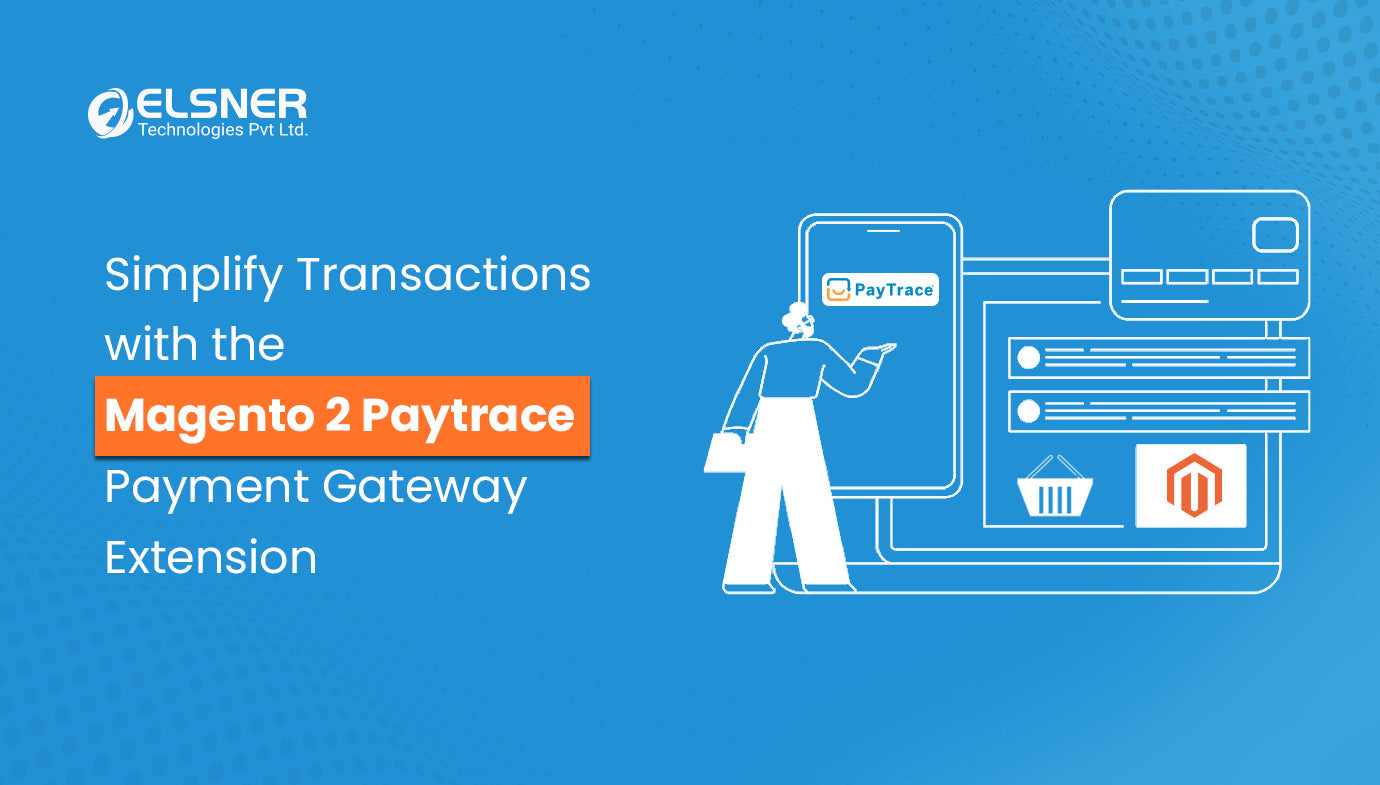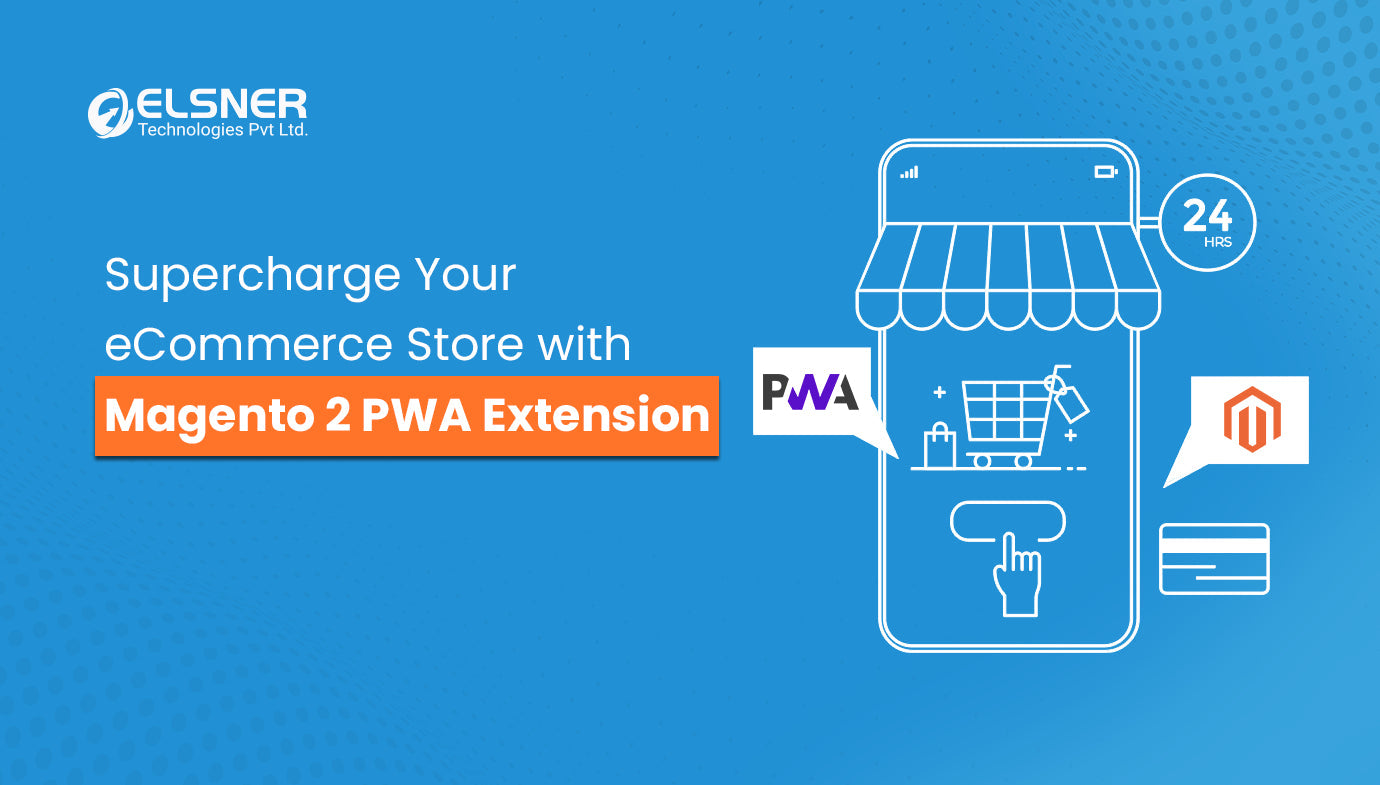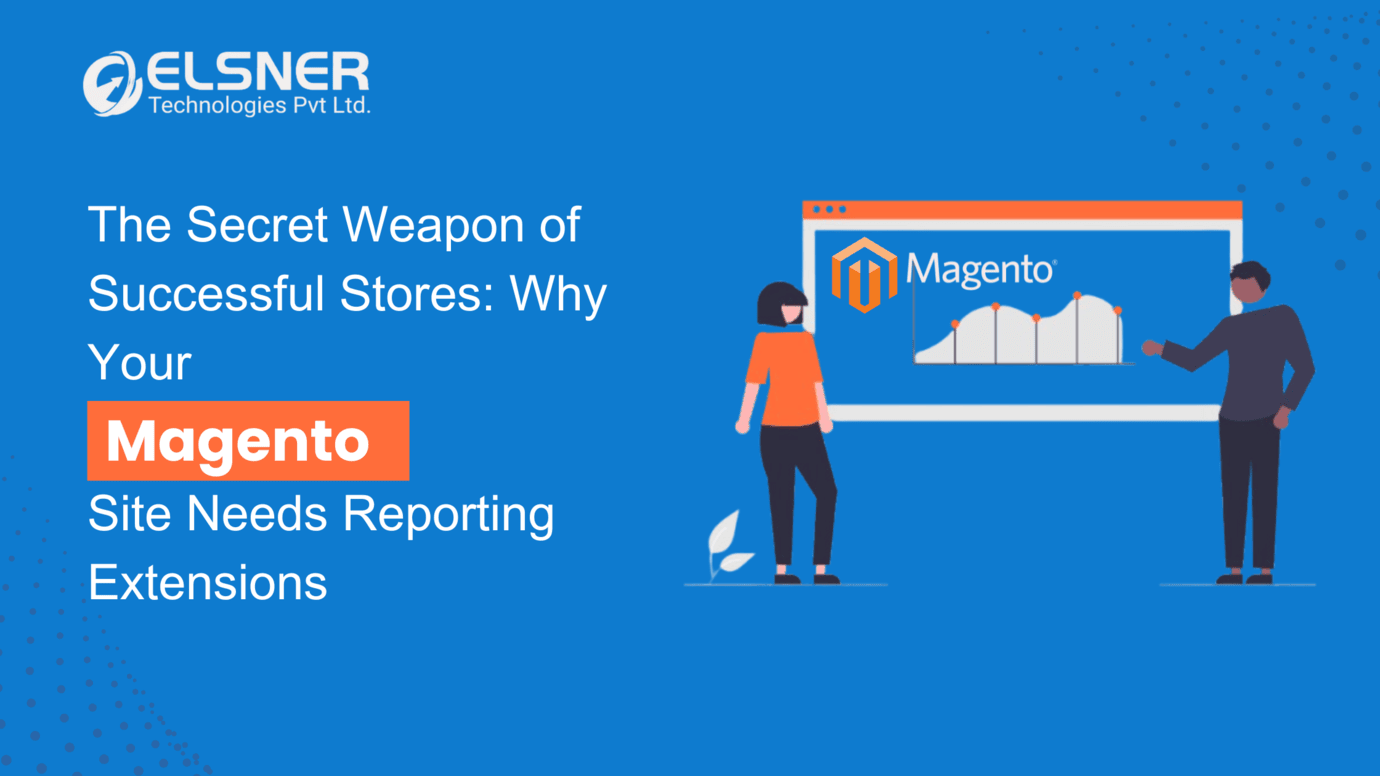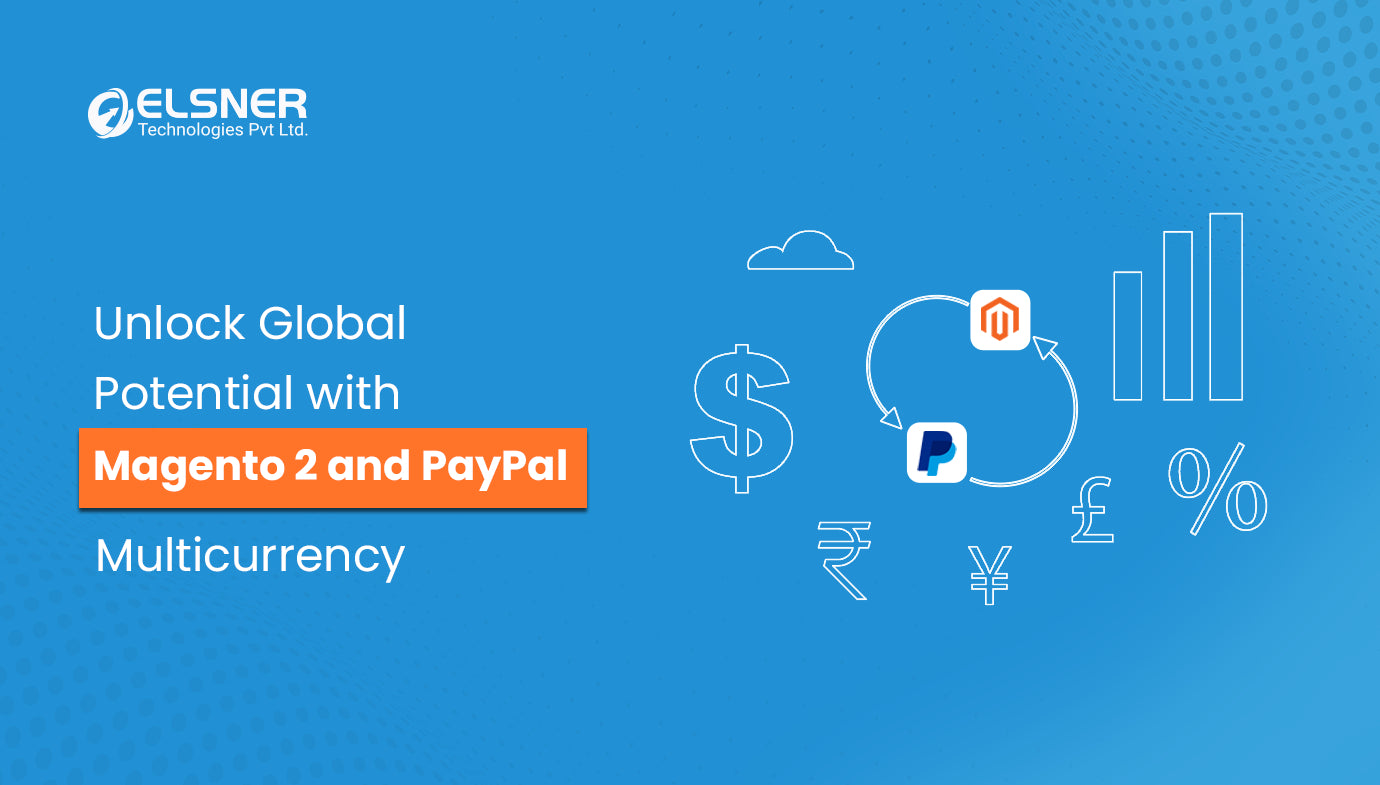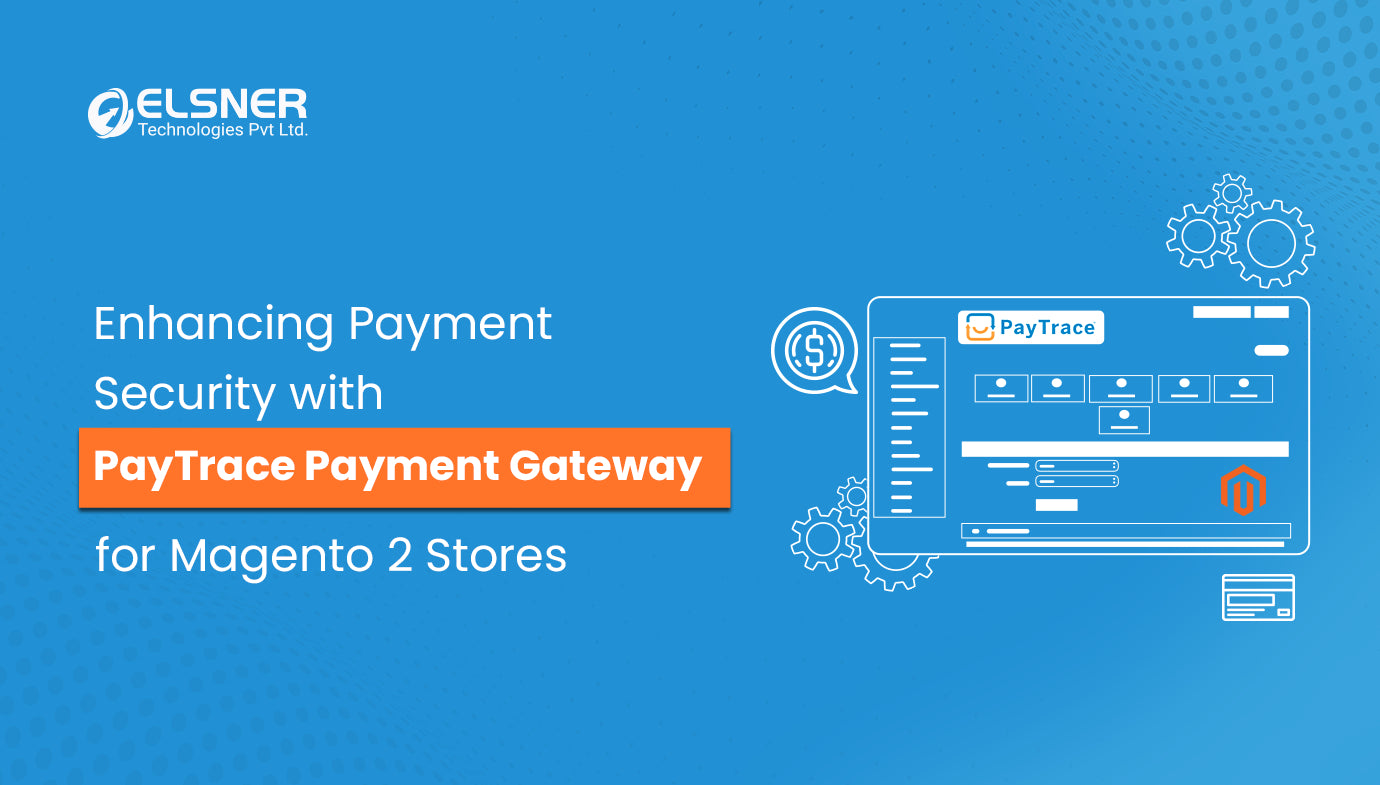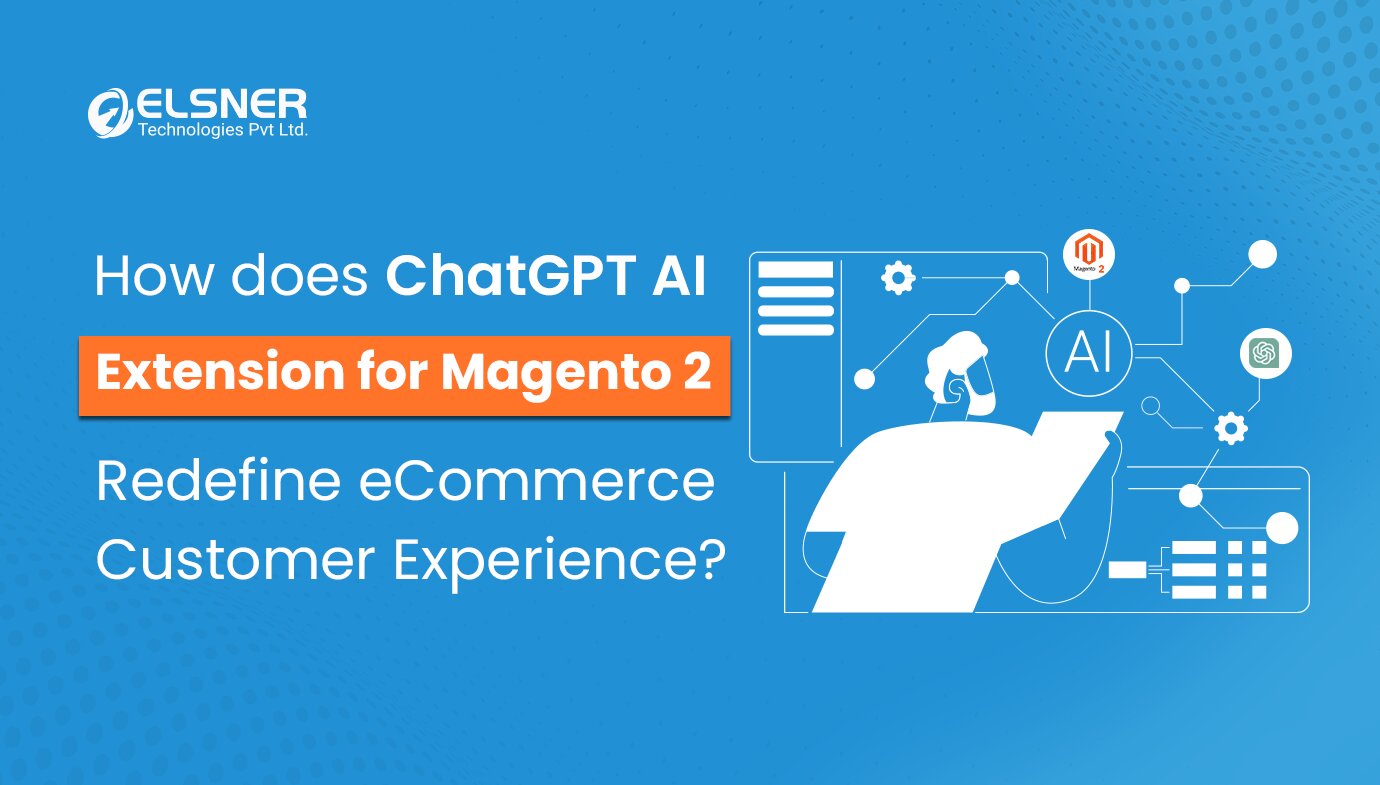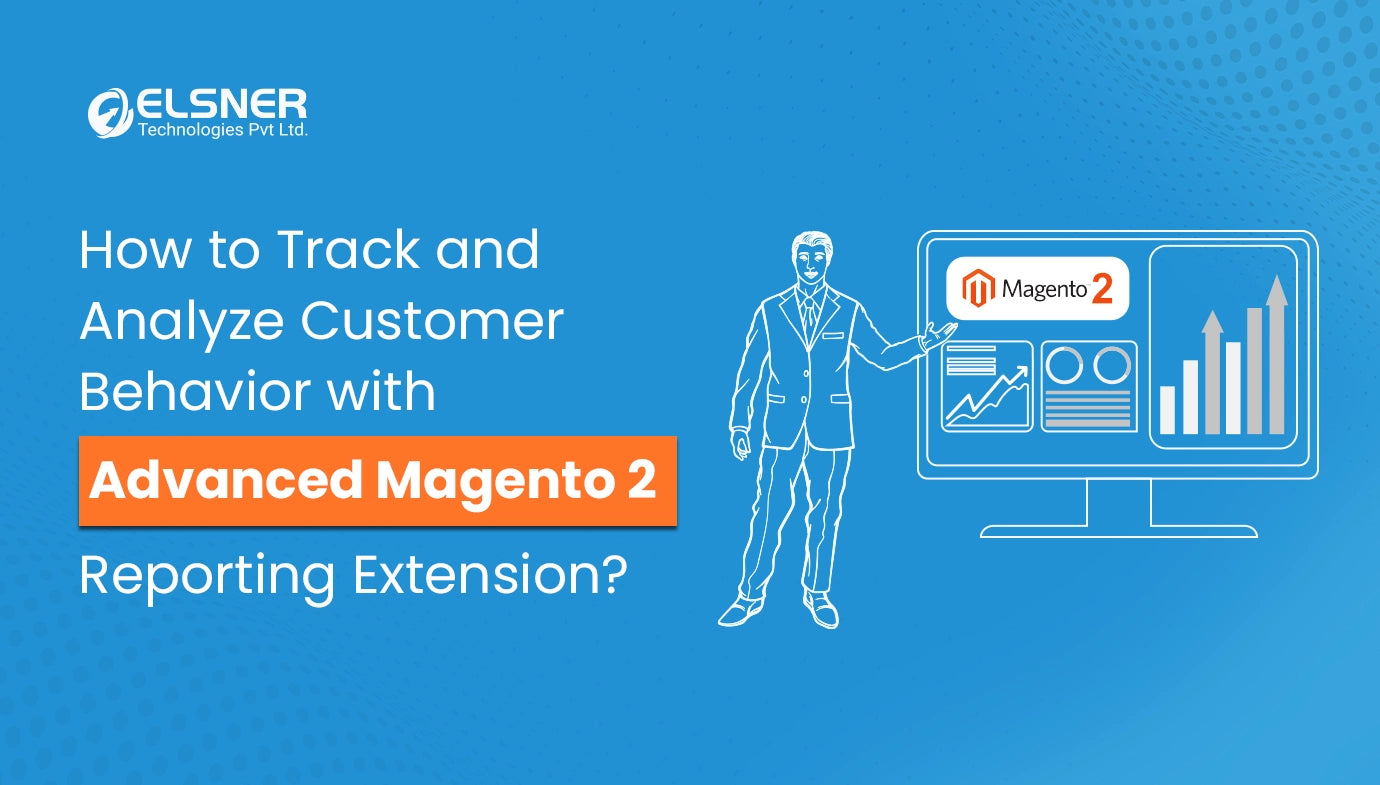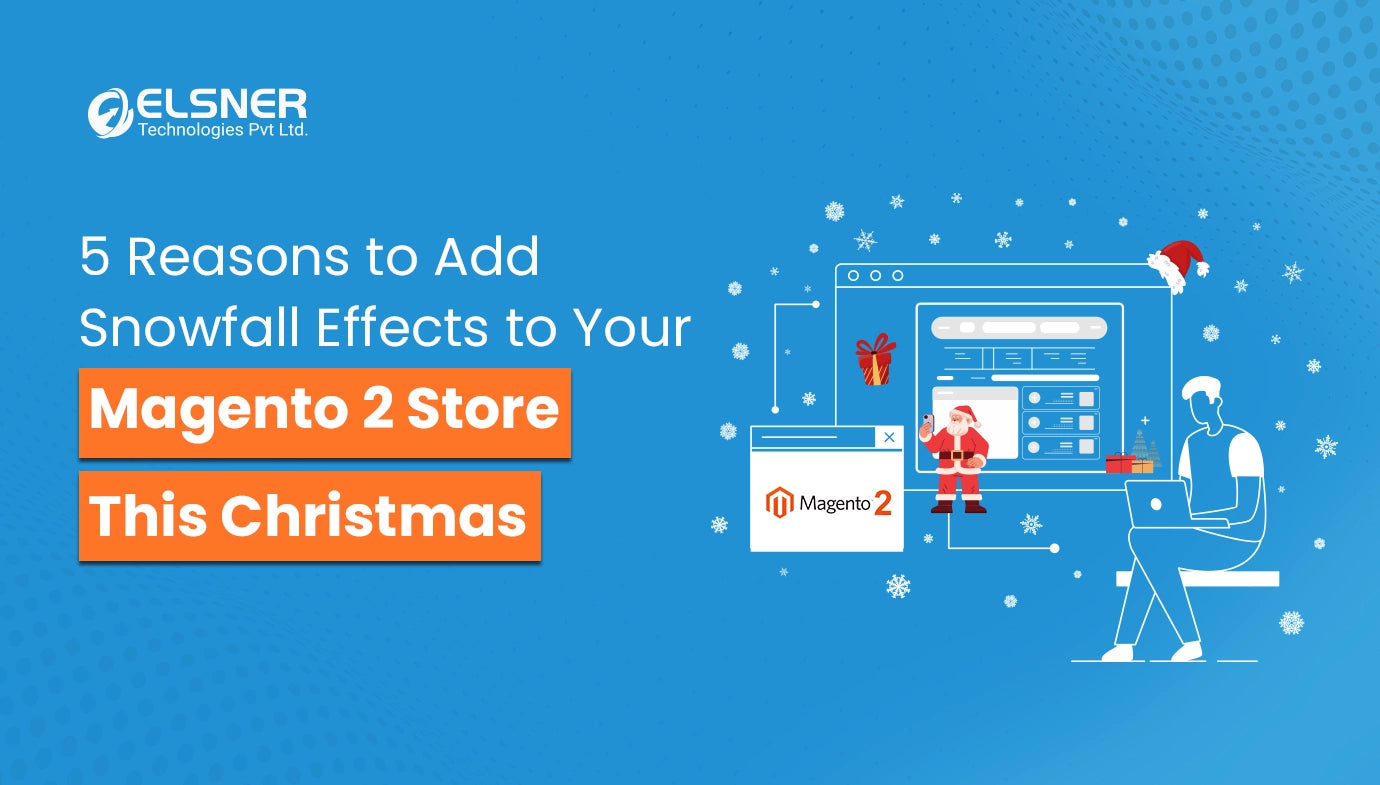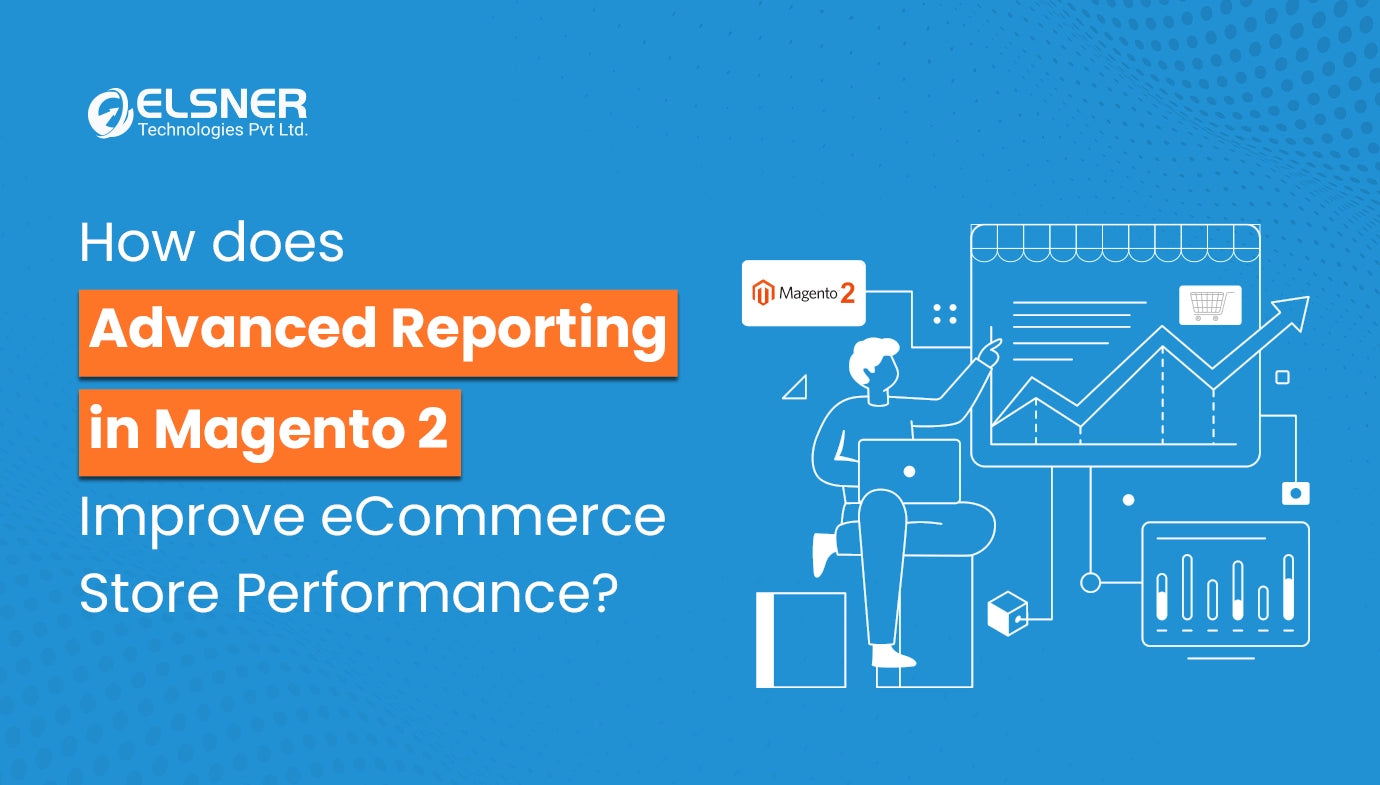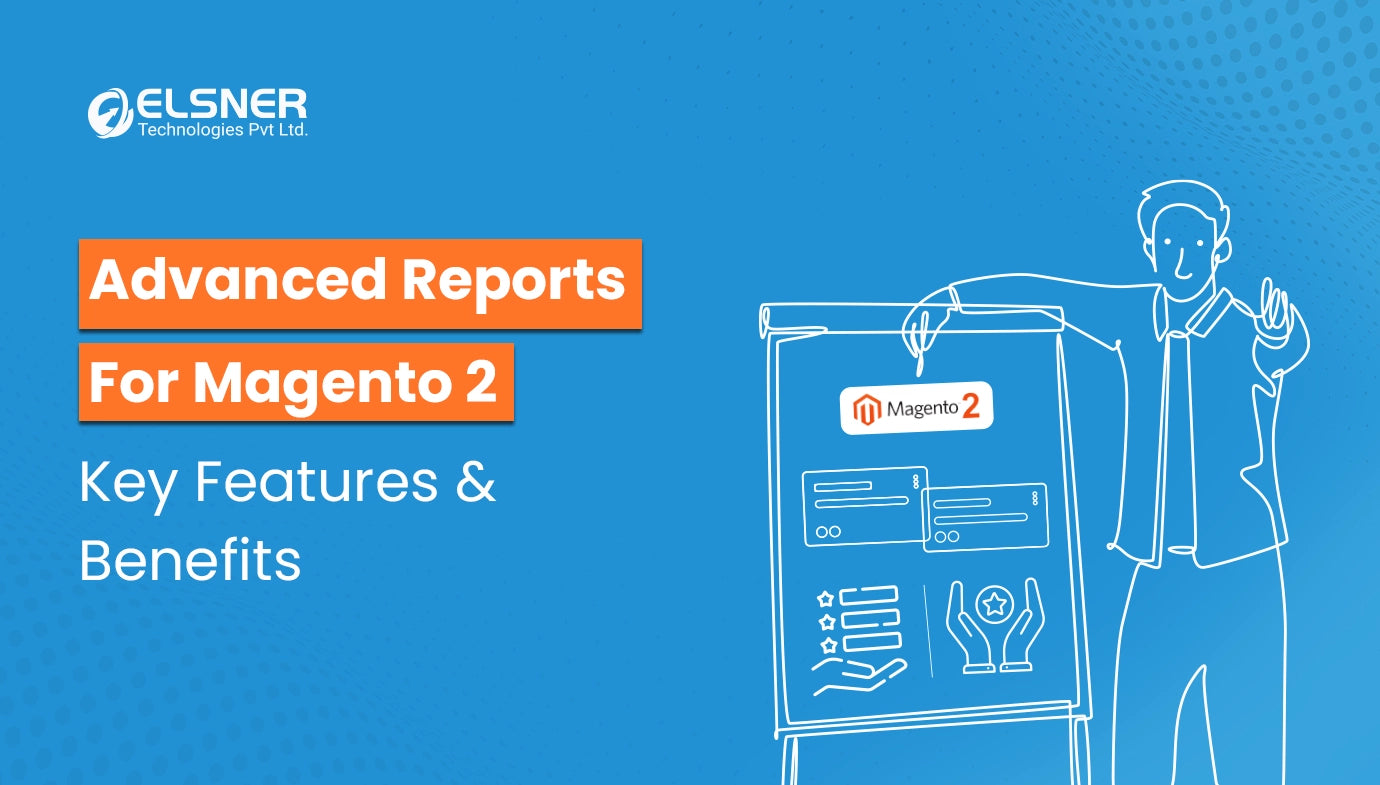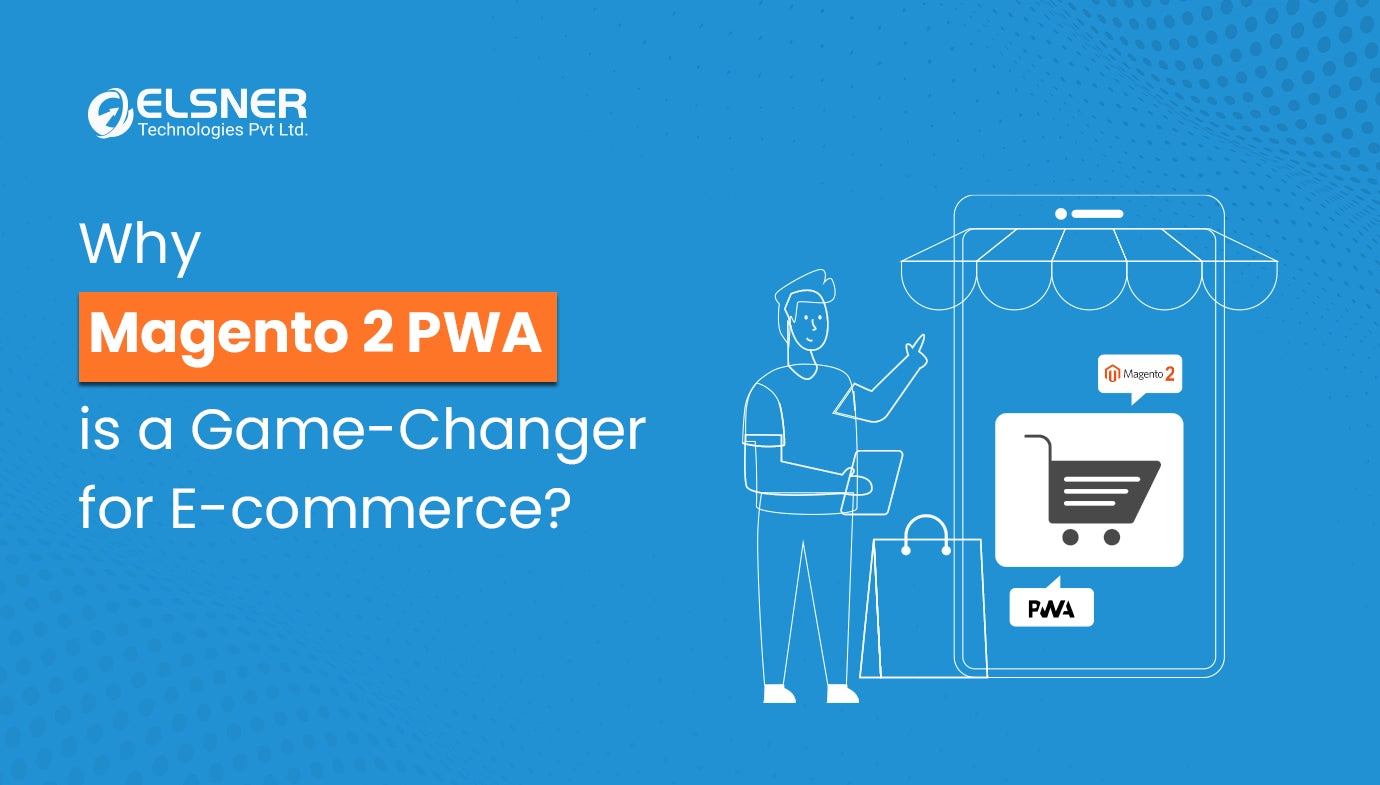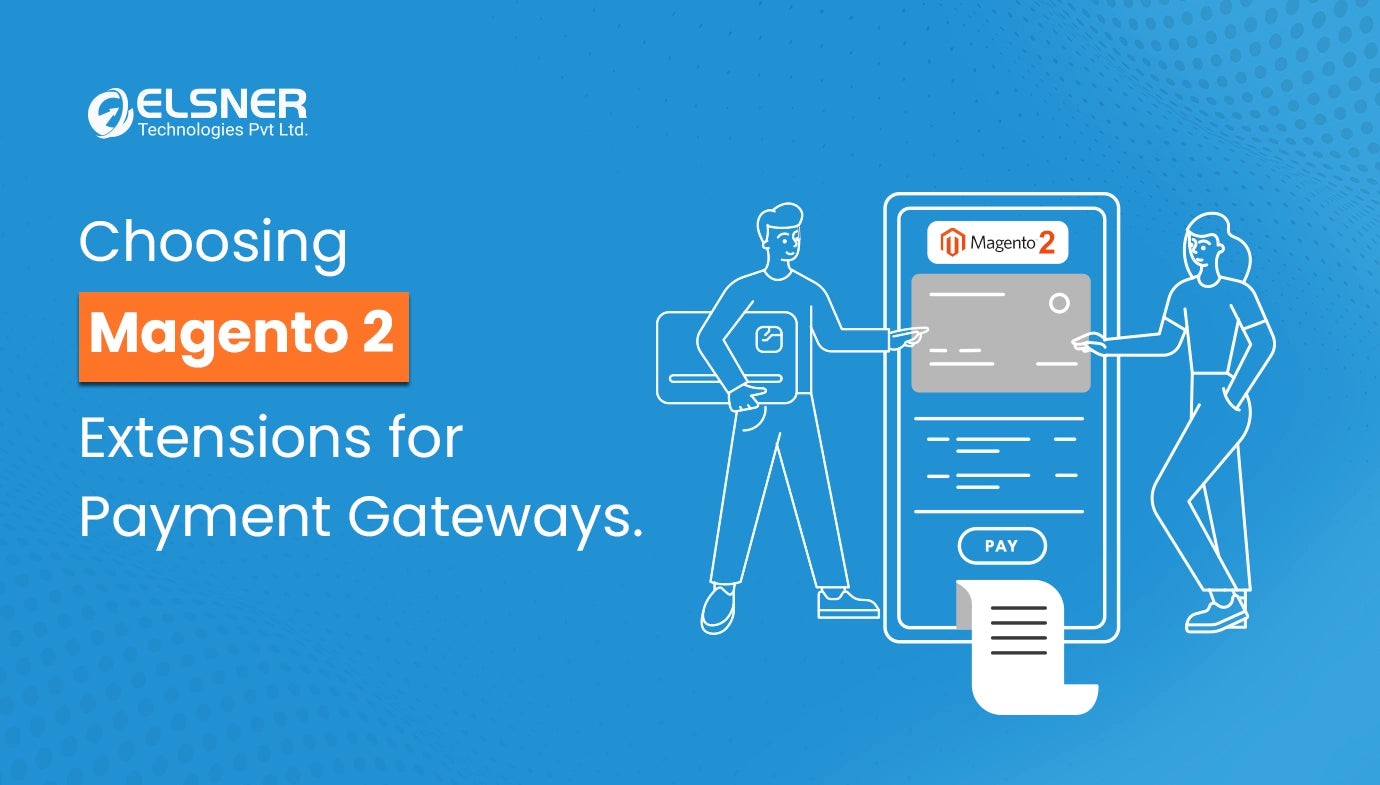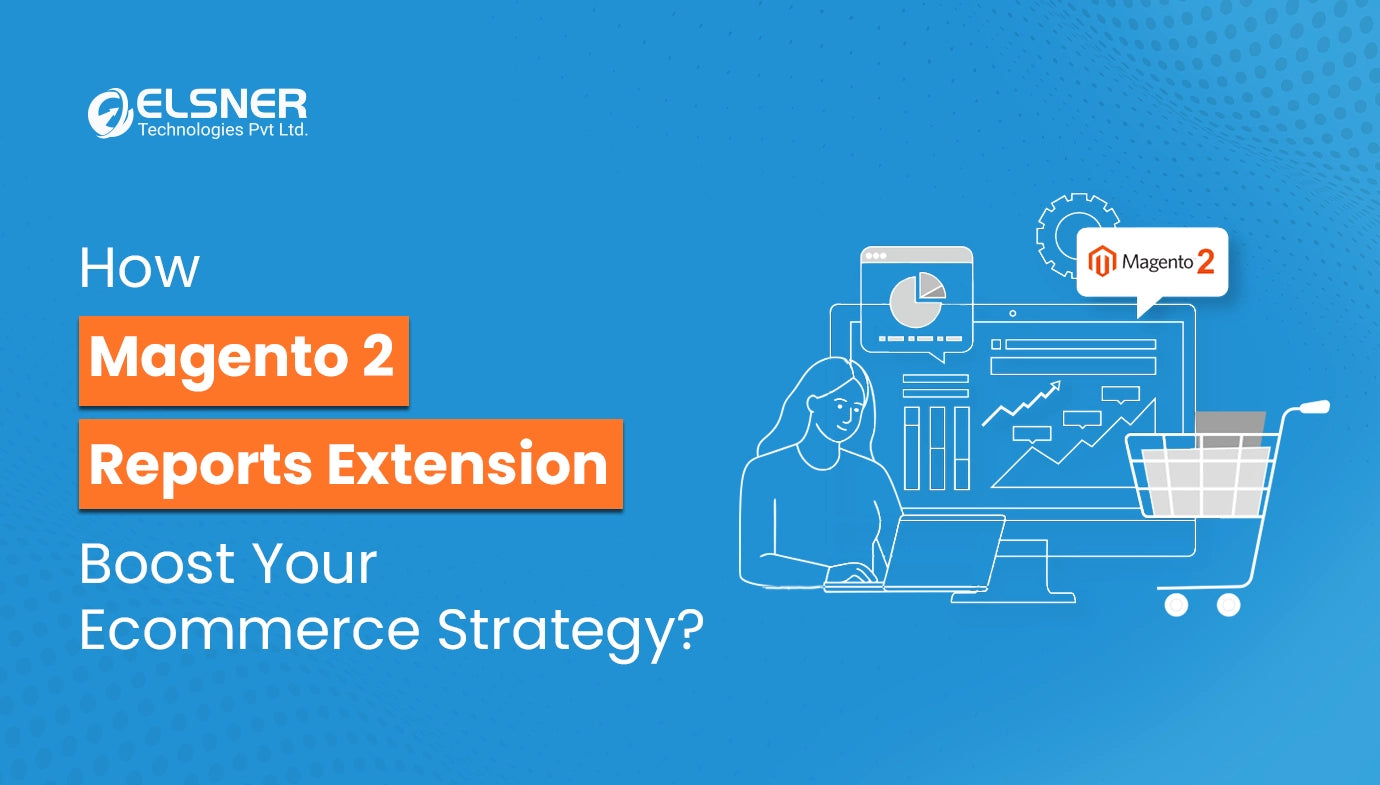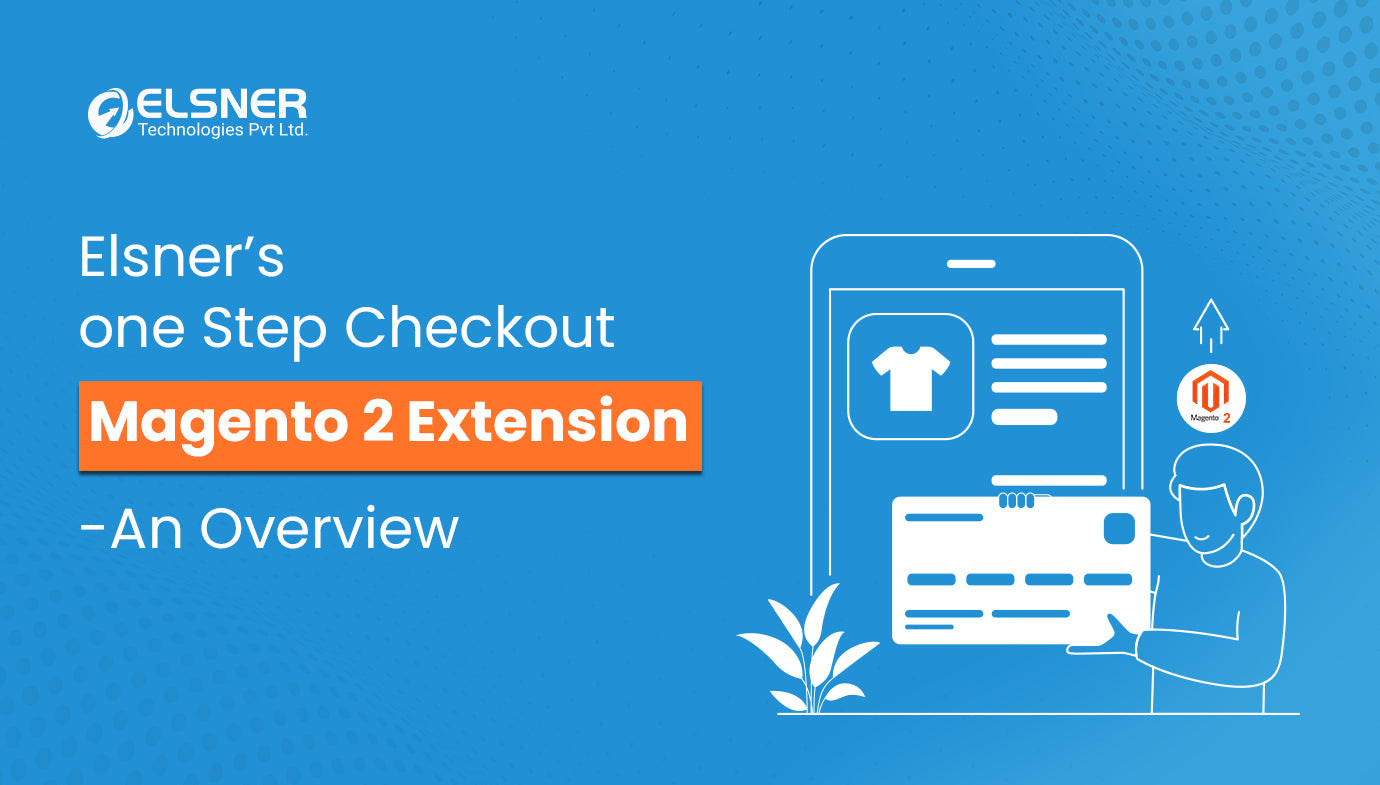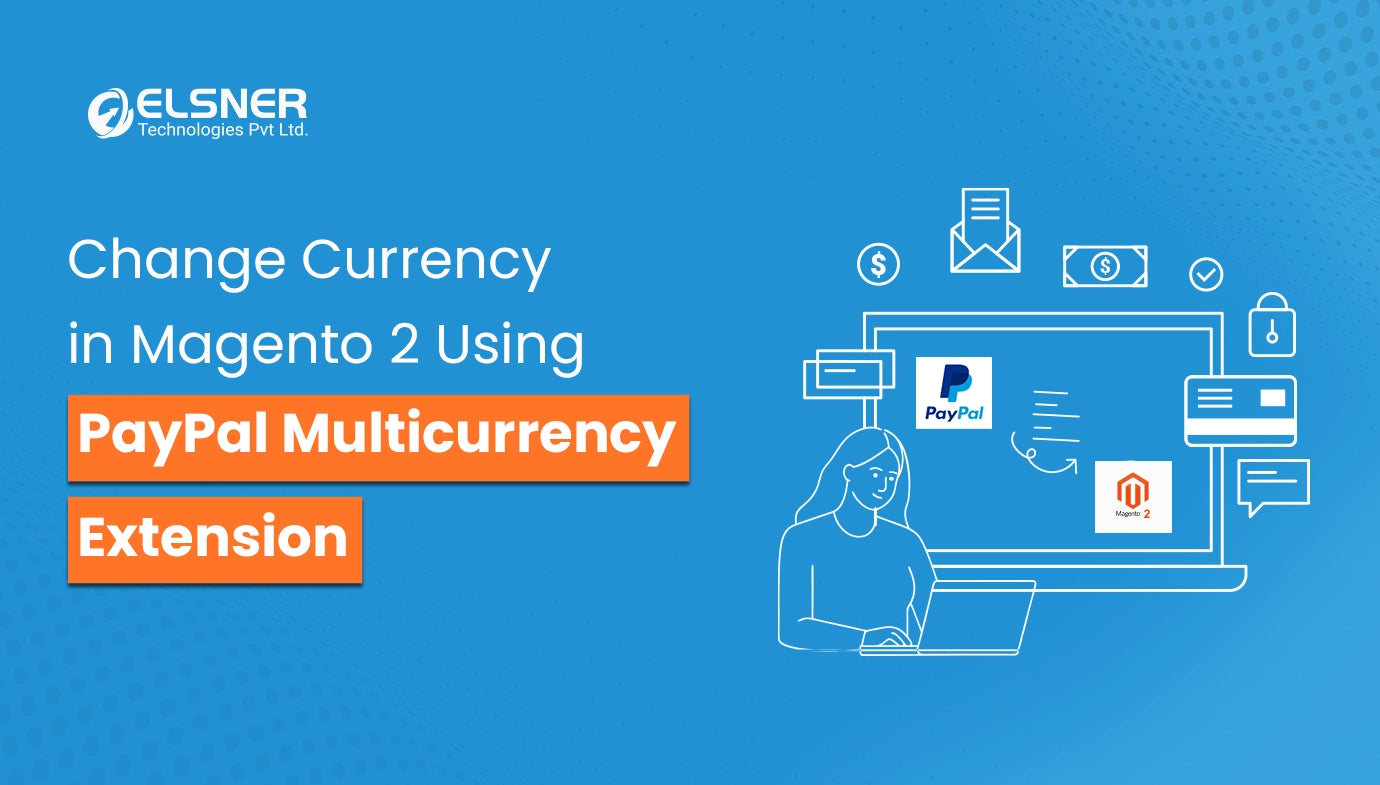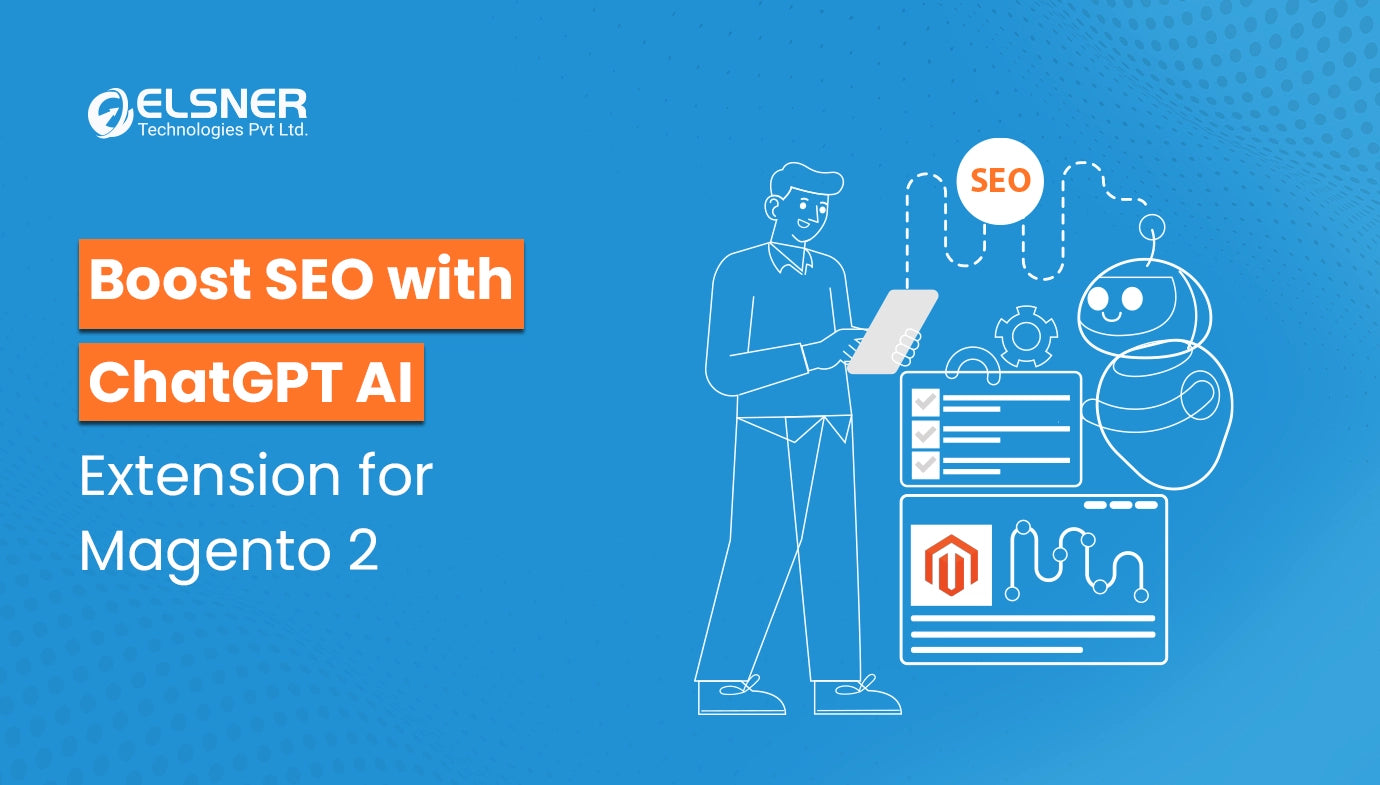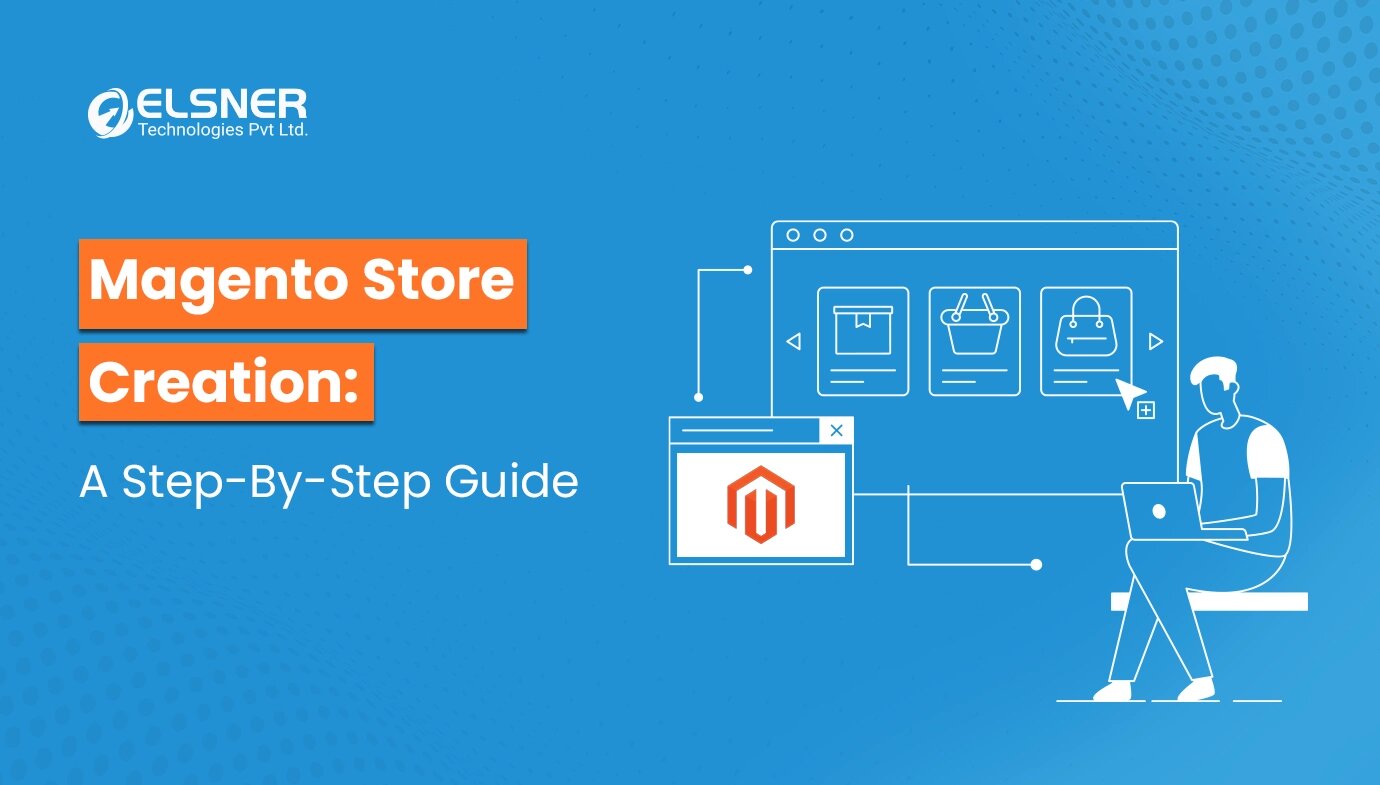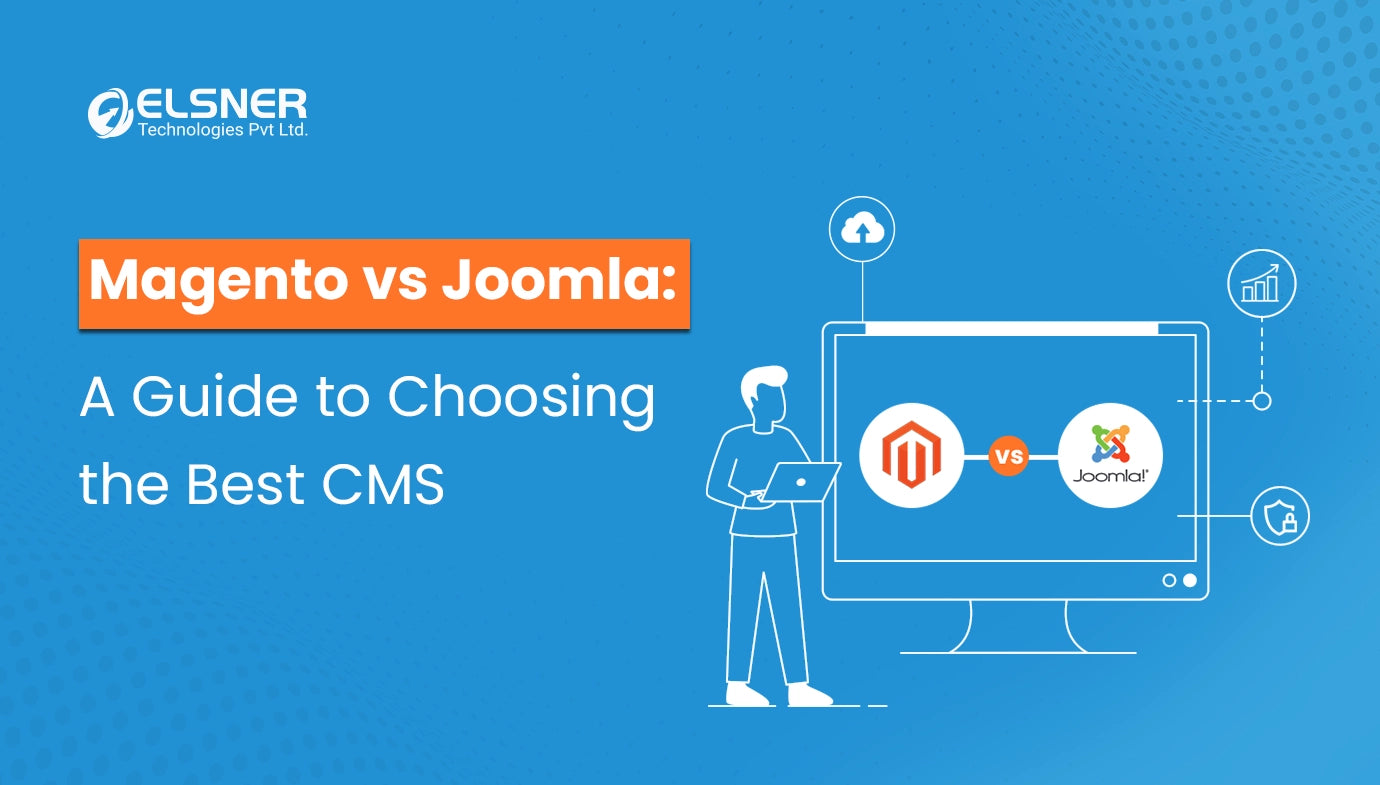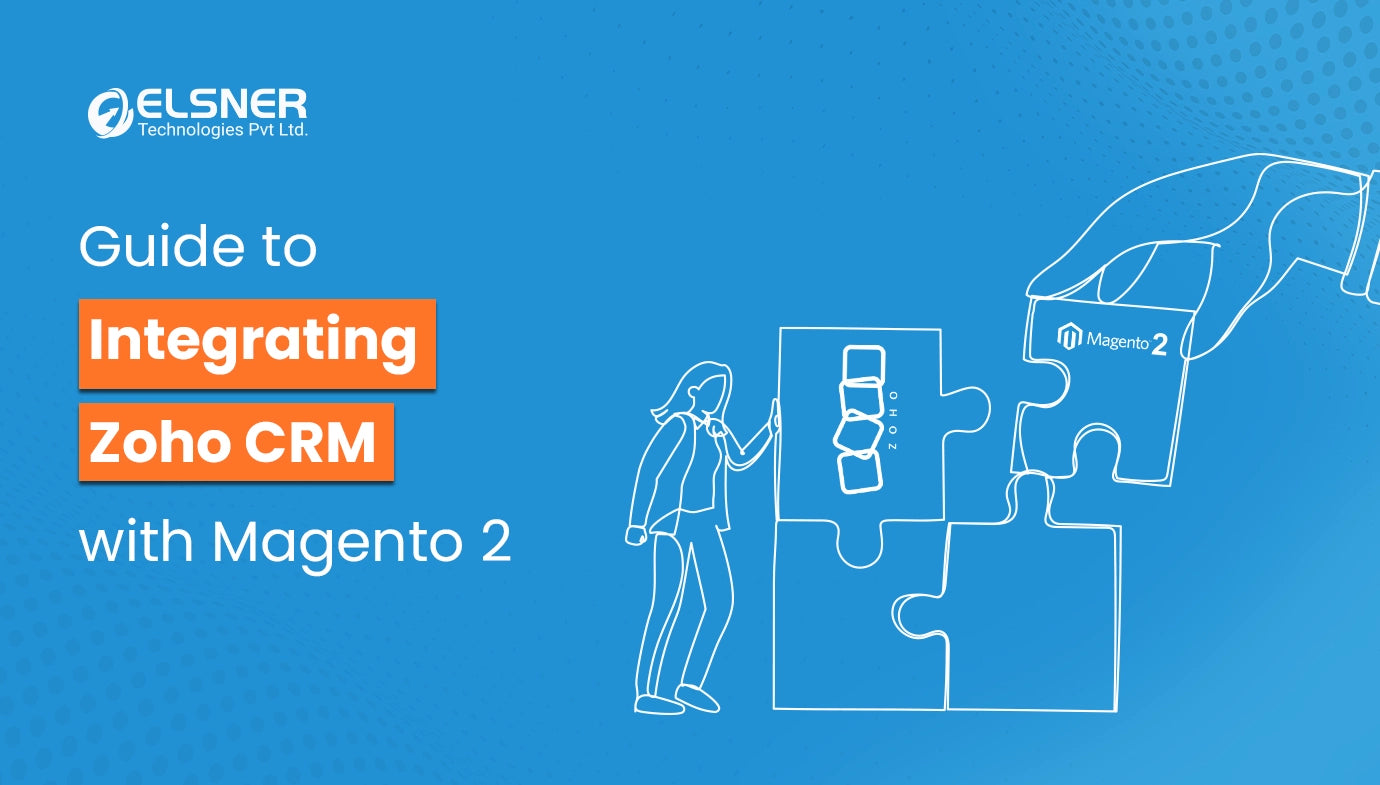Get in Touch
Have you ever planned to start your e-commerce business?
If Yes then surely you've heard about the Magento platform. It's the 3rd most popular and globally preferred platform for e-commerce businesses and more than 200,000+ websites are using the Magento platform, which is owned by well-known Adobe.
It has everything a retailer needs to take their business online and sell worldwide from one online store.
However, many people are not sure about the potential of the Magento platform and how it can help in their business.
If you're looking for a one-stop e-commerce solution then keep reading this article.
Here, we will explore everything about Magento, its pros and cons, the importance of adding a Magento payment gateway and why hire Magento 2 Developer to integrate a payment gateway in Magento.
What is Magento?
Magento is an open-source widely popular e-commerce platform that allows retailers and merchants to build, run and manage their online business from one place. It is the 3rd most preferred platform for ecommerce solutions and many giant brands are using Magento including Nike, Tommy Hilfiger, Samsung, Canon, Bulgari and many more.
From small businesses to giant companies, Magento can be a best-fit solution. It offers various advanced features such as built-in marketing tools, catalog management, SEO, payment gateway integration, inventory management and much more.
Magento is popular because of its simplicity and ease of use features that allow retailers and merchants to run a successful ecommerce business and sell products worldwide with easy management.
Advantages & Disadvantages of Magento
Here are some advantages and disadvantages of using Magento e-commerce platform:
Advantages
1. High Flexibility and Full Customization
Magento is an open-source e-commerce platform that comes with complete flexibility to modify the website including their pre-built templates and storefronts elements. There are so many features available that come in Magento that allow the store to be set up as per the business look and feel. The biggest reason for such complete flexibility is that it allows you to modify the code and turn it in any way you need. Also there are various third-party Magento 2 Modules available such as ERP, CRM, Payment Gateways, SEO etc. which can help in modifying your website and reduce the complexities during the store development in Magento.
2. Built-in Advanced Features
Magento comes with tons of advanced features that make this platform a choice for most retailers and merchants to go online. Some of the top-most features are:
- Built-in Marketing and promotional tools
- Order management
- Catalog management
- Payment gateways integration
- Analytical and reporting tools
- Page Builder
- Multi-language and multi-currencies support
- One-page checkout and shipping process
And much more comes in Magento that surprised you. It has everything retailers need to build their online personalized branded store, set up functionalities and run globally.
3. Scalable
When retailers and merchants plan to go online it means they want to scale their business globally and sell products to their customers worldwide. To fulfill this dream, Magento is a one-stop platform. It is a scalable platform which means you can start from selling 100s of products and scale to more than 100,000 will not make a difference. It is capable of handling all the massive operations and functionalities that you require to scale your business.
4. Mobile-Friendly and SEO-enabled
The two most essential built-in components of the Magento platform are Mobile Optimization and SEO. According to statistics, Mobile e-commerce sales reached $2.2 trillion in 2023, and it clearly shows the majority of customers prefer to shop online through their smartphones. With this consideration, Magento offers Mobile-friendly options that keep your website responsive for devices and run smoothly. Also it allows you to manage all the SEO operations like Mera tags for products, SEO-friendly URLs, prefixes and image optimization from one place to boost your website visibility and ranking on search engines.
5. Multi-Store Management System
Magento allows retailers to manage their multiple online stores and their operations from one place. From analyzing the inventory to sales/orders management, it's not easier with a user-friendly store Dashboard to track all store data and make data-driven decisions.
Disadvantages
1. High Learning Curve
Magento comes with tons of rich features that surely attract most retailers but it's essential to understand that Magento is a complex platform that requires high learning and knowledge around object-oriented programming (OOP), PHP, MySQL and Git to use. Instead it's better to hire a Magento developer to get the work done more efficiently and accurately.
2. Required Powerful Hosting
Also if you want to set up a store on Magento then don't consider shared hosting its not suitable for the Magento platform. You require dedicated and powerful hosting to smoothly run your store on Magento. Magento is just a platform to use but requires a powerful Hosting separately to run it smoothly.
3. Required Technical Expertise
Magento is not suitable for those who don't have expertise in the technical domain. Else they need to hire experienced Magento developers to let the professionals set up your online store and other integrations.
5 Magento Payment Gateways
Here's the list of Top 5 Magento payment gateways that you must consider for your Magento e-commerce store:
1. PayPal
PayPal is one of the world's most trusted payment gateways for merchants and retailers. More than 435 million users are using this payment gateway for their online stores. It's available in 200+ countries and allows users to do secure, smooth and fast transactions.
2. Stripe
Another leading Payment gateway for Magento 2 is Stripe which allows transactions in more than 100 currencies with 25+ countries availability. Most businesses are using Stripe for its unique features like accepting subscription-based payments, building a marketplace, one-click checkout and full customization as per your business look and feel.
3. Amazon Pay
Amazon Pay is now capturing the market and allows 12+ countries to make seamless payments. It accepts various payment options including MasterCard, Visa, American Express, Discover etc. It's a very secure platform for merchants and a better option for those who are initially setting up their online store in Magento.
4. Braintree
Braintree is powered by PayPal and it's another popular payment gateway that supports 130+ countries. It is equipped with various advanced features such as data encryption, fraud prevention, recurring bills, one-stop checkout and more that offer retailers the flexibility to manage their payments.
5. Authorize.Net
When it comes to Magento-based payment gateways, Authorize.Net is mainly used by small to medium-sized businesses to ensure secure payment services for customers. More than 430,000+ merchants are happily using this payment gateway for seamless transactions. It accepts payments in multiple ways including credit/debit cards, eChecks, Apple Pay and PayPal.
Things to Consider While Searching for a Magento Payment Gateway
When there are so many outstanding payment gateways available in Magento then how to find which one is right for your business? Here are some major factors every merchant should consider when choose a best Magento payment gateway:
1. Security
Security is the biggest factor when it comes to choosing the right payment gateways for Magento stores. One of the secured payment gateways is one that uses 128-bit SSL encryption technology for secured transactions. Paytrace Payment Gateway is an ingenious extension that provides extensive security and fraud-handling features.
2. Cost
There are different types of charges required including merchants fees, transaction fees, gateways fees and more. So make sure to pick a gateway that has less cost and does not majorly affect the profits.
3. Compatibility
Make sure that the payment gateway you've picked is compatible with your Magento store and accepts most of the ways to receive payments.
4. Global Support
Every business that is setting up a store on Magento with a vision to take it globally. So make sure that your payment gateway supports your vision and accepts payments from anywhere in the world.
5. Improve Customers Experience
Customer experience matters a lot and when users are paying the bill then it must give a seamless smooth Payment process that builds trust and encourages customers to shop more.
Based on these factors, you can pick the right Magento 2 Modules for your Magento store and allow customers to make payments without any hesitation.
How to Integrate Payment Gateway for Magento 2?
Here's the step-by-step process to integrate payment gateway in Magento:
Step 1. Choose the Payment Gateway
First, choose the Magento based payment gateway as per your business needs and consider the given factors to finalize the right one for your business.
Step 2. Setup a Merchant Account and Ensure Compatibility
Once you've picked the best payment gateway for your Magento store then it's time to set up a merchant account in the payment gateway. But make sure that payment gateway is compatible with your Magento store.
Step 3. Install and Configure the Payment Gateway
Now, install a payment gateway Magento 2 modules from the Magento marketplace and complete the other configurations.
Step 4. Enable the Payment Gateway
Enable the extension for your Magento store and configure the additional settings to be compatible for your store.
Step 5. Test it
It's time to test the payment gateway whether it's working fine on your Magento store or facing any issues. Test with a small amount, make payment and check if it's credited successfully in your account.
Step 6. Launch and Maintain
When everything seems good then launch it and start maintaining the payment gateway extension, keep up-to-date and track the operations.
Wrapping Up!
Overall, Magento is an excellent choice for merchants to set up, run and manage their online store worldwide. It offers everything from pre-built templates, inventory automation to payment gateways to run your business successfully. We hope this guide helps you to set up your Magento store with easy integration and run operations smoothly. Now it's your turn to hire Magento 2 developer, set up your online store and run successfully.

